Breaking
- MENU
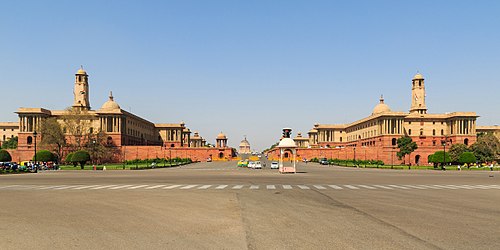
(Monthly Digest of Official Indian Statements on Middle East)
BILATERAL ISSUES
IRAN
India Joins the Ashgabat Agreement, New Delhi, 1 February 2018
India has been admitted to Agreement on the Establishment of an International Transport and Transit Corridor between the Governments of the Islamic Republic of Iran, the Sultanate of Oman, Turkmenistan and the Republic of Uzbekistan signed on 25 April 2011 (Ashgabat Agreement).
Turkmenistan, as depository State of Ashgabat Agreement, informed India today that all the four founding members have consented to the Accession of India and that India’s accession to the Agreement will enter into force on 3 February 2018.
Ashgabat Agreement envisages facilitation of transit and transportation of goods between Central Asia and the Persian Gulf. Accession to the Agreement would diversify India’s connectivity options with Central Asia and have a positive influence on India’s trade and commercial ties with the region. Upon receipt of approval of the Union Cabinet for India’s accession to the Ashgabat Agreement, India had deposited the Instrument of Accession with Turkmenistan in April 2016. Source: Ministry of External Affairs (MEA)
The President of Iran to pay a State visit to India, New Delhi, 14 February 2018
The President of the Islamic Republic of Iran H.E. Dr. Hassan Rouhani will pay a State visit to India at the invitation of the Prime Minister Shri Narendra Modi from 15-17 February 2018.
President Rouhani will be accorded a ceremonial reception on 17 February. He will have meetings with Rashtrapatiji and the Prime Minister.
It may be recalled that Prime Minister Shri Narendra Modi had paid a State visit to Iran in May 2016.
During the forthcoming visit of the President of Iran, both sides would review the progress achieved in bilateral relations and also exchange views on regional and international issues of mutual interest.
Besides his official engagements in Delhi, President Rouhani will also visit Hyderabad. Source: Ministry of External Affairs (MEA)
English Translation of Press Statement by Prime Minister during the visit of President of Iran (February 17, 2018), New Delhi, 19 February 2018
Our distinguished friends and guests and the President of Islamic Republic of Iran, His Excellency Dr. Hassan Rouhani,
Respected members of the delegations from India and Iran,
Friends from Media,
Namaskar!
Your Excellency,
It is a great pleasure for me to welcome you here in India.
This state visit of the President of Iran is happening after an interval of ten years. It is a matter of great pleasure for us to host you here in India.
I visited Tehran in the year 2016. And now your visit within two years offers a gold opportunity to further strengthen our old and friendly relations.
Our mutual relations are not just political and diplomatic, these are thousands of years old cultural and civilizational relations.
These relations have mutual trust and respect for each other.
As a neighbour and friend, the relationship between India and Iran has continued to further enhance the existence of each other for hundreds of years.
The amount of respect Maulana Rumi got in Iran, it is the same here in India also.
Mutual cooperation between the two countries aspires for prosperity in both countries and hope for peace and stability in both our region and the world.
Excellency,
Your leadership and your clarity of vision has made a very big contribution in further strengthening the India-Iran relations.
During my visit to Iran in 2016, we had set the agenda and roadmap for bilateral cooperation. Your partnership with India has increased to a new higher and higher level of cooperation. Your India visit has taken our partnership to a new and higher level of cooperation.
Today's results and the agreements that we have signed are indicative of the progress made in the last few quarters.
This reflects the desire from both sides that we want to increase our bilateral economic cooperation, we want to further enhance connectivity, we want to increase partnership in the field of energy and want to further strengthen our centuries old cultural relations.
We are rapidly moving towards further enhancing our regional connectivity.
Excellency,
I congratulate you for your leadership in the development of Chabahar Port as the golden gateway to Central Asia for the land locked Afghanistan.
We will support the development of Chabahar-Zahidan railway line so that Chabahar Gateway can be utilized to its full potential.
Today we have discussed many more issues and also made many decisions. Whether it is tax or investment, whether it is effective banking channels or cooperation between trade bodies, we have taken several important steps for the future today.
We have given special attention to enhance mutual exchange between people. For a very long time Indians and Iranians have been learning from each other and have been studying at each other’s place. I'm glad that through students and scholars this process is still continuing even today.
Enhancing parliamentary exchanges, providing e-visa facility on a reciprocal basis, organizing cultural festivals; establishing a chair in Indian studies and collaboration in Persian language in Iran will help in this direction.
We have also talked about the solution of humanitarian issues related to fishermen and sea-farers.
We have expanded our area of cooperation to new sectors of infrastructure, health, traditional medicine, agriculture, labour, entrepreneurship and communication.
We agree that the partnership between India and Iran is in the interest of peace, prosperity and stability in this area.
We both want to see our friend and neighbour Afghanistan as a peaceful, safe, sustainable, prosperous and pluralistic nation.
We want to see our region and the world free from terrorism.
Both Indian and Iranian people are associated with the shared ideology of Sufi message of peace and tolerance. Looking at our common interests, we are committed to stopping the expansion of such forces that promote terrorism, extremism, illegal drug trafficking, cyber-crime and international organized crime in various forms.
Excellency,
Your visit will guide the vision of strategic cooperation for both our countries and for the benefit of the people of this region.
Once again I thank you very much for accepting our invitation.
Jai Hind! Source: Ministry of External Affairs (MEA)
Visit of 4-member delegation of Members of Parliament from Iran to India (February 26-28, 2018), New Delhi, February 28, 2018
A 4-member delegation of Members of Parliament from Iran and as part of the Iran- India Parliamentary Friendship Group visited India from 26-28 February, 2018. During the visit, they called on the External Affairs Minister and held discussions with Parliamentary Standing Committee on Energy. On the side-lines of the visit, the Iranian delegation visited the Indian Agricultural Research Institute, (Pusa Campus) New Delhi for an interactive session.
The visit was held in the context of the promotion of parliamentary exchanges between the two countries. This aspect was highlighted as an important element of the recently concluded visit to India of the President of Iran from 15-17 February 2018 and the concomitant India-Iran Joint Statement issued at the conclusion of the Presidential visit. Source: Ministry of External Affairs (MEA)
List of MoUs/Agreements signed during the visit of President of Iran to India (February 17, 2018), 17 February 2018
|
S. No. |
Name of MoUs/ Agreements |
Description of MoUs/ Agreements |
Indian side |
Iranian side |
|
|
Agreement for the Avoidance of Double Taxation and the Prevention of Fiscal Evasion with respect to taxes on Income. |
To avoid burden of double taxation between the two countries in order to promote flow of investment and services. |
Smt. Sushma Swaraj, External Affairs Minister |
Dr. Masoud Karbasian, Minister of Economic Affairs and Finance |
|
2. |
MoU on Exemption from Visa requirement for holders of Diplomatic Passports. |
Waiver of requirement of visa for the travel of diplomatic passport holders in each country. |
Smt. Sushma Swaraj, External Affairs Minister |
Dr. Mohammad Javad Zarif, Minister of Foreign Affairs |
|
3. |
Exchange of Instrument of Ratification of Extradition Treaty. |
It brings into effect the Extradition Treaty signed between India and Iran in 2008. |
Smt. Sushma Swaraj, External Affairs Minister |
Dr. Mohammad Javad Zarif, Minister of Foreign Affairs |
|
4. |
Lease Contract for Shahid Beheshti Port- Phase 1 of Chabahar during Interim Period between Port and Maritime Organization (PMO), Iran and India Ports Global Limited (IPGL). |
Leasing of a part of the area of the multipurpose and container Terminal for a term of one and half solar year (18 months) to take over operation of existing port facilities. |
Shri Nitin Gadkari, Minister of Shipping |
Dr. Abbas Akhundi, Minister of Road and Urban Development |
|
5. |
MoU on Cooperation in the field of Traditional Systems of Medicine. |
To develop and strengthen cooperation in traditional systems of medicine including regulation of teaching, practice, drugs and drugless therapies; facilitating supply of all medicine materials and documents; exchange of experts for training of practitioners, paramedics, scientists, teaching professionals and students and accommodating them in institutions for research, educational and training programmes; mutual recognition of pharmacopoeias and formularies; setting up of academic chairs; provision of scholarships; recognition of traditional preparations on reciprocity basis; permission to practice on reciprocity basis. |
Shri Vijay Gokhale, Foreign Secretary |
H.E. Gholamreza Ansari, Ambassador of Iran |
|
6. |
MoU on the establishment of an Expert Group on Trade Remedy Measures to promote cooperation in areas of mutual interest. |
It aims to establish a framework of cooperation in the area of Trade Remedial Measures viz. anti-dumping and counter veiling duty. |
Smt. Rita Teotia, Secretary (Commerce) |
Dr. Mohammad Khazaei, Deputy Minister of Economic Affairs and Finance |
|
7. |
MoU on Cooperation in the field of Agriculture and Allied Sectors. |
Bilateral cooperation in the field of agriculture and allied sector including joint activities, programmes, exchange of information and personnel; cooperation in the field of agricultural crops, agricultural extension, horticulture, machinery, post-harvest technology, plant quarantine measures, credit and cooperation, soil conservation, seed technology, livestock improvement, dairy development. |
Shri S K Pattanayak, Secretary (Agriculture) |
Dr. Mohammad Khazaei, Deputy Minister of Economic Affairs and Finance |
|
8. |
MoU on Cooperation in the field of Health and Medicine. |
To establish comprehensive inter-ministerial and inter-institutional cooperation between two sides including pooling of technical, scientific, financial and human resources; upgrading the quality and reach of human, material and infrastructural resources in healthcare, medical education, research and training; exchanging experience in training of medical doctors and other health professionals; assistance in development of human resources and setting up of health care facilities; regulation of pharmaceuticals, medical devices and cosmetics and exchange of information thereon; cooperation in medical research; cooperating in public health, Sustainable Development Goals (SDGs) and international health. |
Shri Vijay Gokhale, Foreign Secretary |
H.E. Gholamreza Ansari, Ambassador of Iran |
|
9. |
MoU on Postal Cooperation. |
Cooperation between the two postal agencies including exchange of experience, knowledge and technology in e-commerce/logistics services; cooperation on philately; establishment of working group of experts; feasibility studies on using air and surface transit capacities of both countries |
Shree Anant Narayan Nanda, Secretary (Post) |
H.E. Gholamreza Ansari, Ambassador of Iran |
Source: Ministry of External Affairs (MEA)
India-Iran Joint Statement during Visit of the President of Iran to India (February 17, 2018), New Delhi, 17 February 2018
"Towards prosperity through greater connectivity”
His Excellency Dr. Hassan Rouhani, President of the Islamic Republic of Iran, paid his first State Visit to India at the invitation of Prime Minister of the Republic of India, Shri Narendra Modi, from 15-17 February 2018.
During the visit, Dr. Hassan Rouhani, President of the Islamic Republic of Iran was accompanied by a high-level delegation comprising Cabinet Ministers, senior officials and business leaders. He was accorded a friendly and cordial ceremonial welcome in the forecourt of Rashtrapati Bhawan on 17 February. President, Shri Ram Nath Kovind hosted an official banquet dinner in honour of the visiting dignitary. Delegation level discussions were held between Prime Minister Shri Narendra Modi and President Dr. Hassan Rouhani. Prime Minister of India also hosted a Lunch in his honour. Hon'ble Vice President and External Affairs Minister of India called on the visiting dignitary. President Rouhani visited Hyderabad on 15-16 February 2018.
Wide-ranging and constructive discussions on bilateral, regional and multilateral issues were held in a cordial atmosphere. In recalling the principles on development of bilateral relations articulated in the ‘New Delhi Declaration’ of 23 January 2003, the two sides expressed satisfaction at the progress made in bilateral ties since Prime Minister Modi’s visit to Iran in May 2016 and reiterated their common resolve to further intensify and strengthen multifaceted bilateral cooperation. The two leaders noted that the mutually beneficial ties between the two countries were based upon the strong foundations of the two millennia old cultural and civilizational connect. They shared the view that strengthened bilateral relations also contribute to regional cooperation, peace, prosperity and stability.
Prime Minister Modi and President Rouhani witnessed the exchange of the following documents and jointly addressed the media:
i. Agreement for the Avoidance of Double Taxation and the Prevention of Fiscal Evasion with Respect to Taxes on Income
ii. MoU on Exemption from Visa requirement for holders of Diplomatic Passports
iii. Instrument of Ratification of Extradition Treaty
iv. MoU on Cooperation in the field of Traditional Systems of Medicine
v. MoU on the establishment of an Expert Group on Trade Remedy Measures to promote cooperation in areas of mutual interest
vi. MoU on Cooperation in the field of Agriculture and Allied Sectors
vii. MoU on Cooperation in the field of Health and Medicine
viii. MoU on Postal Cooperation
ix. Lease Contract for Shahid Beheshti Port-Phase 1 of Chabahar during Interim Period between Port and Maritime Organization (PMO), Iran and India Ports Global Limited (IPGL)
Bilateral Exchanges
President Rouhani and Prime Minister Modi agreed to further intensify and diversify the existing high-level engagement through frequent and wider range of bilateral exchanges at all levels. In this context, it was decided to convene within this year the meeting of the India-Iran Joint Commission and all its Working Groups, Foreign Office Consultations, dialogue between defence and National Security Council structures of the two countries, Policy Planning dialogue, and to promote Parliamentary exchanges.
Connectivity
The two sides recognized the unique role of Iran and India in promoting multi-modal connectivity within and across the region. The successful inauguration of the Phase-1 of Chabahar Port in early December 2017; the ratification of the Trilateral Agreement between India, Iran and Afghanistan on Establishment of International Transport and Transit Corridor by all sides; and the successful shipment of wheat assistance from India to Afghanistan through Chabahar Port have opened a new gateway to and from Afghanistan, Central Asia and beyond. Both sides reiterated their commitment for early and full operationalization of Shahid Beheshti Port at Chabahar. The Iranian side welcomed the investment of Indian side in setting up plants in sectors such as fertilizers, petrochemicals and metallurgy in Chabahar FTZ on terms mutually beneficial to the concerned parties.
In this context, both leaders welcomed the lease contract for Shahid Beheshti port of Chabahar during interim period between port and Maritime Organization (PMO), Iran and India Ports Global Limited (IPGL). They further directed that the Coordination Council should meet within the timelines stipulated in the Trilateral Agreement.
With a view to fully utilize the potential of the Chabahar Port and its connectivity to Afghanistan and Central Asia, India conveyed its readiness to support the development of Chabahar- Zahedan Rail line. IRCON, India and CDTIC, Iran who are engaged in discussions, were tasked to finalize the technical parameters and financing options for the project in a time bound manner. Both leaders encouraged greater efforts for cooperation in railway sector including supply of steel rails, turnouts and locomotives.
Both sides reiterated their commitment to International North- South Transport Corridor (INSTC) and stressed on the need for inclusion of Chabahar within its framework. It was noted that Iran will hold an early meeting of the INSTC Coordination Meeting in Tehran. India's accession to TIR Convention and Ashgabat Agreement was welcomed as additional steps at enhancing regional connectivity and linking regional centres of economic growth.
The two Leaders released a joint postage stamp depicting Deendayal Port, Kandla and Shahid Beheshti Terminal, Chabahar that reflected the enhanced prosperity through greater connectivity.
The Iranian side expressed its readiness to enhance enabling environment to attract Indian private/public sector investments, in Chabahar FTZ. In this context, Iran will organize a business promotion event, with participation of countries from the region and beyond, with the objective of showcasing the economic opportunities offered by the Chabahar Port.
Energy Partnership
Noting the complementarity of interests and natural partnership in the energy sector, it was agreed to move beyond traditional buyer-seller relationship and develop it into a long term strategic partnership, both sides agreed to continue and increase the pace of negotiation for reaching appropriate results on energy cooperation, including Farzad B gas field.
Trade and Investment Cooperation
The two Leaders agreed on the deepening trade and investment cooperation between the two countries. In this context, they recognized the need to put in place an effective banking channel for business transactions. It was noted that permission for the Iranian Pasargad bank to open a branch in India was under advance consideration. It was also agreed to set up a Joint Committee of officials to examine feasible options, including Rupee-Rial Arrangement, Asian Clearing Union mechanism to establish functional payment channels.
The finalization of the Double Taxation Avoidance Agreement was welcomed as a step that would promote business environment. The two sides agreed to undertake text based negotiations on Preferential Trade Agreement as well as conclusion of Bilateral Investment Treaty in a fixed time frame.
Noting the importance of the role of businessmen and industry in promoting economic and commercial cooperation, the two Leaders welcomed the opening of the Confederation of the Indian Industry (CII) regional office in Tehran last year and the agreements for mutual cooperation signed between various trade bodies on both sides. The Indian side conveyed that it looks forward to Iran Chamber of Commerce & Industry opening an office in India.
India fully supports the accession of the Islamic Republic of Iran to the World Trade Organization and the on-going consensus building efforts among WTO members to reactivate the accession process, consistent with the objective of making the Organization universal and inclusive.
Promotion of Friendly exchanges and people to people contacts
In order to facilitate friendly exchanges between the two countries, it was agreed that India would grant e-visa facility for the Iranian nationals and Iran would grant e-visa facility to the Indian nationals. The signing of visa waiver agreement for holders of diplomatic passports was also a step in this direction. Both sides reiterated the importance of addressing humanitarian issues concerning the nationals of the two countries. Iran side will positively consider India’s request to upgrade Consulates in Iran.
With a view to build on the strong foundations of civilization and cultural connect and promote better understanding of each other at various levels, it was agreed to hold the Festival of India in Iran in 2018/19; establish a Chair of Indian studies in Tehran University; organize Indology courses for Iranian diplomats by the Foreign Service Institute of India; support the Persian language courses in India; cooperate further in the areas of archaeology, museums, archives and libraries.
Security and Defence Cooperation
The two Leaders welcomed the growing interaction between their National Security Councils and agreed to enhance regular and institutionalized consultations between them and others concerned on terrorism, security and related issues such as organized crime, money-laundering, drug trafficking and cybercrime.
Both sides expressed interest in enhancing cooperation possibilities in maritime domain. It was agreed to hold dialogue to look into measures for cooperation in defence sphere, including port calls by naval ships, training and regular exchanges of defence delegations.
The two sides positively noted the progress achieved in implementation of the bilateral agreement on transfer of sentenced persons; the Extradition Treaty by both sides and understanding reached on Mutual Legal Assistance Treaty on Civil and Commercial Matters.
Other Areas
They also welcomed bilateral cooperation as per mutual interest and agreement in a number of other areas, including higher education, science and technology, agriculture, labour and entrepreneurship, tourism, posts through regular interaction and institutional mechanisms, and directed relevant authorities to work out further details.
Regional and International Issues
The two Leaders exchanged views on regional and international situation. In view of strengthening multilateralism, President Rouhani acknowledges the aspiration of India to play a greater role in international fora. The two leaders reiterated the importance of strong United Nations and emphasized the need for an early reform of the Security Council reflective of the current geopolitical realities. They reaffirmed their commitment to supporting the Intergovernmental Negotiations [IGN] for comprehensive reform of the Security Council. Both Leaders underscored the need for strengthening and reform of multilateral financial institutions and enhancing the voice and participation of developing countries in international economic decision-making.
Recognizing the challenges of terrorism and ideologies of violent extremism, the two Leaders reiterated their strong commitment to combat terrorism in all its forms and manifestations, and stressed that there can be no justification whatsoever for any act of terrorism. They expressed their conviction that the fight against terrorism should not only seek to disrupt and eliminate terrorists, terrorist organizations and networks, but should also identify and address conditions conducive to terrorism as well as extremist ideologies. They stressed that terrorism cannot and should not be associated with any religion, nationality or ethnic group. They urged an immediate end to all support and sanctuaries enjoyed by terrorist groups and individuals and were of the view that States that aid, abet and directly or indirectly support terrorism should be condemned. They called on the international community to end selective or partial approaches to combating terrorism and, in this regard, stressed the need to make every effort to reach an agreement on and conclude a comprehensive convention on international terrorism at the UNGA. Both sides endorsed UNGA consensual resolution in 2013 derived from the idea of Iran’s President "World Against Violence and Extremism”(WAVE) and called for combating terrorist elements and complete eradication of their supportive movements, financial support cut to terrorist groups in particular.
The Indian side reaffirmed its support for full and effective implementation of the Joint Comprehensive Plan of Action (JCPOA), which has been endorsed by the UN Security Council and is crucial contribution to the non-proliferation framework and international peace, stability and security.
Both sides stressed that the interests of peace and stability in the region are best served by a strong, united, prosperous, pluralistic, democratic and independent Afghanistan while supporting the National Unity Government in the country. They stressed the significance of strengthening India-Iran-Afghanistan trilateral consultations and coordination, including by suitably supplementing their cooperation on Chabahar. In this context, they also called upon the countries of the region to come forward for enhancing regional connectivity and take steps to do away with the obstacles on land transit.
President Rouhani expressed deep appreciation and gratitude for the gracious hospitality extended to him and his delegation during their stay in India. He extended invitation to the President and the Prime Minister of India to visit the Islamic Republic of Iran. The invitations were accepted and it was agreed to work on the dates for the visit through diplomatic channels.
Source: Ministry of External Affairs (MEA)
ISRAEL
Question No.855, Israeli PM’s Visit, Lok Sabha, 07 February 2018
855. SHRI LALLU SINGH:
SHRI PRAHLAD SINGH PATEL:
SHRI KAPIL MORESHWAR PATIL:
SHRI P. NAGARAJAN:
Will the Minister of EXTERNAL AFFAIRS be pleased to state:
(a) the details of recent visit of Israeli Prime Minister to India;
(b) the names of sectors on which discussions were held and agreements signed between the two countries during the Israeli Prime Minister’s visit;
(c) whether Israel has taken a decision to make investment in certain special sectors in India; and
(d) if so, the details thereof?
ANSWER
THE MINISTER OF STATE IN THE MINISTRY OF EXTERNAL AFFAIRS, (SHRI M. J. AKBAR)
Source: Ministry of External Affairs (MEA)
Question No.839, Sikhs in Israel, Lok Sabha, 07 February 2018
839. PROF. PREM SINGH CHANDUMAJRA
Will the Minister of EXTERNAL AFFAIRS be pleased to state:
(a) whether any study has been made to update the number of Sikhs living in Israel and if so, the details thereof;
(b) if not, whether the Government intends to make any such study in the near future;
(c) if so, the details thereof; and
(d) whether such study has also included the socio-economic condition of Sikhs living in Israel and if so, the details thereof?
ANSWER
THE MINISTER OF STATE IN THE MINISTRY OF EXTERNAL AFFAIRS (SHRI M. J. AKBAR)
Source: Ministry of External Affairs (MEA)
Question No. 658, Visit of Israeli Prime Minister to India, Rajya Sabha, 08 February
658. DR. T. SUBBARAMI REDDY:
Will the Minister of EXTERNAL AFFAIRS be pleased to state:
(a) the main points in the comprehensive talks Israeli Prime Minister (PM) had with our PM during his recent visit to India;
(b) the details of bilateral agreements signed between India and Israel during the visit; and
(c) the details of defence and strategic partnership agreement signed between the two countries and in the field of indigenous development of missile?
ANSWER
THE MINISTER OF STATE IN THE MINISTRY OF EXTERNAL AFFAIRS (SHRI M. J. AKBAR)
India, Israel Joint Steering Committee Meeting on Homeland and Public Security held, New Delhi, 28 February 2018
The two-day meeting of the Joint Steering Committee on Homeland and Public Security of India and Israel concluded here today. The Indian delegation was headed by Shri T.V.S.N. Prasad, Additional Secretary, Ministry of Home Affairs and the Israeli delegation was led by Ambassador of Israel, Mr. Daniel Carmon. The delegations had inter-ministerial representations from both sides.
The meeting follows the resolve of the Prime Ministers of both countries to combat the grave threat that terrorism poses to peace and security including from non-state actors, and with an aim to enhance cooperation and to boost the bilateral relations between two countries.
The objectives of the meetings were capacity building and modernization in the Police Forces besides border management. Both sides agreed to work out the modalities to address these issues. The discussions were held in a friendly atmosphere and it was agreed to maintain sustained interactions to enhance security cooperation between both countries. Source: Press Information Bureau (PIB)
JORDAN
Cabinet approves signing of MoU between India and Jordan on Cooperation in Health Sector, New Delhi, 28 February 2018
The Union Cabinet chaired by the Prime Minister Shri Narendra Modi has approved the proposal for signing of a Memorandum of Understanding (MoU) between India and Jordan on cooperation in the field of Health & Medical Science.
The MoU covers the following areas of cooperation
(i) Universal Health Coverage (UHC);
(ii) Health System Governance;
(iii) Services and Information Technology in Health;
(iv) Health Research;
(v) National Health Statistics;
(vi) Health Finance and Health Economy;
(vii) Chronic Disease Control;
(viii) Tobacco Control;
(ix) Diagnosis, Treatment and Medication in Tuberculosis;
(x) Regulation of Pharmaceuticals and Medical Devices; and
(xi) Any other area of cooperation as may be mutually decided upon.
A Working Group will be set up to further elaborate the details of cooperation and to oversee the implementation of this Memorandum of Understanding (MoU). Source, Press Information Bureau (PIB)
Cabinet approves signing of MoU between India and Jordan on Cooperation in the Field of Manpower, New Delhi, 28 February 2018
The Union Cabinet chaired by the Prime Minister Shri Narendra Modi has approved the proposal for signing of a Memorandum of Understanding (MoU) between India and Jordan on Cooperation in the Field of Manpower.
The MoU aims at enhancing collaboration between the two sides in promoting best practices in the administration of contractual employment, reflects the latest reforms in recruitment processes and enhances the protection and welfare of Indian workers in Jordan. Collaboration between the two sides in use of online portal for recruitment of Indian manpower is expected to usher in greater transparency and curb malpractices in the recruitment process.
The MoU will be valid for a period of five years, incorporates provision of automatic renewal and a monitoring mechanism through a Joint Technical Committee. Source: Press Information Bureau (PIB)
Cabinet approves Agreement between India and Jordan on Cooperation and Mutual Administrative Assistance in Customs Matters, New Delhi, 28 February 2018
The Union Cabinet chaired by Prime Minister Shri Narendra Modi has approved the signing and ratifying an Agreement between India and Jordan on Cooperation and Mutual Administrative Assistance in Customs Matters.
The Agreement will help in the availability of relevant information for the prevention and investigation of Customs offences. The Agreement is also expected to facilitate trade and ensure efficient clearance of goods traded between the countries.
Background:
The Agreement would provide a legal framework for sharing of information and intelligence between the Customs authorities of the two countries and help in the proper application of Customs laws, prevention and investigation of Customs offences and the facilitation of legitimate trade. The draft text of the Agreement has been finalized with the concurrence of the two Customs Administrations. The draft Agreement takes care of Indian Customs' concerns and requirements, particularly in the area of exchange of information on the correctness of the Customs value, tariff classification and origin of the goods traded between the two countries. Source: Press Information Bureau (PIB)
Cabinet approves MoU between India and Jordan for mining and beneficiation of Rock Phosphate & MOP and setting up production facility in Jordan for Phosphoric Acid/DAP/NPK Fertilizers, New Delhi, 28 February 2018
The Union Cabinet chaired by Prime Minister Shri Narendra Modi, has approved the signing of a Memorandum of Understanding (MoU) between India and Jordan for mining and beneficiation of Rock Phosphate & MOP and setting up production facility in Jordan for Phosphoric Acid/DAP/NPK Fertilizers with a long term agreement for 100 per cent off-take to India.
The MoU would ensure consistent supply of raw material, intermediaries and finish P&K fertilizers to cater to the needs of the country at a reasonable price. Source: Press Information Bureau (PIB)
KUWAIT
Statement by Shri MJ Akbar, Minister of State for External Affairs at the International Conference for Reconstruction of Iraq in Kuwait (February 14, 2018), 14 February 14 2018
His Excellency, the Deputy Prime Minister and the Foreign Minister of the State of Kuwait;
His Excellency, the Foreign Minister of Iraq;
Distinguished Foreign Ministers;
Distinguished invitees;
Excellences;
Ladies and Gentlemen,
Let me thank His Highness the Amir of Kuwait and the government of Iraq for inviting India to this important event. This is an opportunity for the world to congratulate the people and government of Iraq for their historic victory over a vicious contemporary menace ISIS, and its allies, who used a volatile fusion of false ideology and barbaric terrorism to become a regional epicentre of upheaval and violence against innocent civilians and legitimate government. We must recognize this achievement in the best way possible: through meaningful assistance that fashions a reborn Iraq on the ashes of war. Our focus must be on both Iraq and the Iraqi, and in particular the youth. We must win both the battle and the argument. The answer to terrorism lies in security, prosperity and reaffirmation of sovereignty. The three sustain each other; any indifference or complacency towards any side of this triangle will make the rehabilitation process infructuous.
On behalf of the people and Government of India, I also compliment all those nations who, directly or indirectly, have come together to defeat the regressive and extremist forces that spread their tentacles far beyond Iraq. Terrorism, Fundamentalism and Extremism are the scourge of the 21st century. We must be united in our defence of pluralism and civilization without ifs and buts. There is no "good terrorism” or "bad terrorism”: all terror is an unmitigated evil. India has always supported a free, democratic, pluralistic, federal and unified Iraq.
India responded to the need for humanitarian assistance even while the war was at its peak in Iraq: among other things, in August 2016, we proposed to reconstruct the hospital in Karbala. India responded to the urgent needs of Iraq for relief and economic reconstruction both directly and as part of international efforts under UN auspices.
In response to UN Secretary General's urgent appeal, India contributed US$ 20 million for assistance to the people of Iraq. Activities under this pledge included milk food supplies through World Food Programme, training of Iraqi Foreign Service officers in diplomacy, and other Iraqi officials in Information Technology. In cooperation with WFP, India provided assistance to Iraqi school children and Iraqi refugees in Syria. In addition, India contributed US$ 10 million towards the International Reconstruction Fund Facility for Iraq (IRFFI) for investments, reconstruction and development in Iraq.
India continues to assist Iraq in capacity building through training of Iraqi officials under our technical and economic cooperation programme (ITEC); providing scholarships to Iraqi students for studying in India, and also training Iraqi diplomats in Foreign Service Institute of India. India welcomes thousands of Iraqi nationals annually for diverse reasons from higher studies to advanced medical treatment. To broad base our services, we have also established a Consulate General office in Erbil.
We welcome Baghdad’s announcement that it is now open for investment. We will play our part with project-specific proposals. We support the important role assigned to private sector investors in rebuilding of the terrorist-affected areas in Iraq. During the recent visit of H.E Ibrahim Jaafari, Foreign Minister of Iraq to India, External Affairs Minister of India had assured him on India’s full support and cooperation in the rebuilding process. Our companies have long experience in undertaking projects in the Gulf Region, including Iraq. We are willing to play a substantive role in major projects in petrochemicals, health, education, infrastructure and other sectors. We will also look at any specific requests for rehabilitation projects and essential supplies like medicines, equipment, etc., as required for internally displaced persons as part of our assistance programme.
There are many routes to security and prosperity, but they all have one starting point. The suffering of the Iraqi people must arouse the generally dormant conscience of the international community. Rebuilding must continue in tandem with the longer term sustainable option for the region, which has to be a comprehensive political settlement and reconciliation. Segmented and partial approaches as adopted by some have historically been at best suboptimal, and at worst, unsuccessful.
This is also the moment to remind the international community that an early adoption of the Comprehensive Convention on International Terrorism, a draft of which was proposed by India as early as 1996, would be advisable. It is essential to have a comprehensive legal regime against terrorism. After all, we recognize the enemy; we must also define it.
Thank you. Source: Ministry of External Affairs (MEA)
OMAN
List of Agreements/MoUs signed on the occasion of the visit of Prime Minister to Oman (February 11, 2018), 12 February 2018
|
S. No |
MoUs |
|
1. |
Agreement on Legal and Judicial Cooperation in Civil and Commercial matter |
|
2. |
Agreement on mutual visa exemption for holders of diplomatic, Special, service and official passports |
|
3. |
MoU on Cooperation in the field of health |
|
4. |
MoU on Cooperation in the peaceful uses of outer space. |
|
5. |
MoU on Cooperation between Foreign Service Institute, Ministry of External Affairs, India and Oman Diplomatic Institute. |
|
6. |
MoU on Academic and Scholarly cooperation sectors between National Defence College Sultanate of Oman and the Institute for Defence Studies and the Analyses. |
|
7. |
MoU in the field of Tourism cooperation between India and Oman. |
|
8. |
Annexure to the MoU on Military Cooperation. |
Source: Ministry of External Affairs (MEA)
India Oman Joint Statement during visit of Prime Minister to Oman, 12 February 2018
In recognition of the growing strategic relations between the Sultanate of Oman and the Republic of India, and at the invitation of His Majesty Sultan Qaboos bin Said, Sultan of Oman, Hon’ble Prime Minister of India, Shri Narendra Modi, paid a State visit to the Sultanate of Oman from 11-12 February.
His Majesty Sultan Qaboos bin Said received Hon’ble Prime Minister Shri Narendra Modi on 11 February at Bait al Barakah. His Majesty hosted a dinner in honour of the Indian Prime Minister and the accompanying delegation.
His Majesty the Sultan and the Indian Prime Minister exchanged views on bilateral, regional and global issues of common interest. The discussions were held in cordial and friendly atmosphere. The two sides stressed that India and Oman, as maritime neighbours across the Indian Ocean and the Arabian Sea, have enjoyed close, deeply rooted historical relations. They noted that the historically close bilateral ties, involving vibrant maritime trade and cultural exchanges, have expanded into strategic partnership based on trust and mutual respect.
The Indian Prime Minister also received HH Sayyid Fahd bin Mahmoud al-Said, Deputy Prime Minister for the Council of Ministers and HH Sayyid Asa’ad bin Tariq Al Said, Deputy Prime Minister for International Relations and Cooperation Affairs and Special Representative of H.M. Sultan Qaboos.
The two sides expressed satisfaction over the current state of bilateral relations, especially the robust security and defence cooperation, and agreed to further expand their cooperation to new areas of mutual interest, including inter-alia, space, cyber security, energy security, renewable energy and food security etc., with a view to take the strategic partnership to a higher level. The two sides welcomed the signing of various agreements and MoUs during the visit, which would further consolidate and expand the on-going bilateral cooperation between the two countries.
The two sides reiterated the importance of regular bilateral dialogue through exchange of visits, at the level of senior officials. They expressed appreciation for the well-functioning bilateral institutional mechanisms in the fields of defence, security, trade and investment, agriculture, education, culture, manpower etc., already in place with a view to tap the existing potential for cooperation in these areas. They noted that new and potential areas of cooperation identified during the meetings held under these mechanisms have contributed in expanding bilateral ties and called for effective implementation of the decisions made under the framework of these mechanisms.
Regional Security and combatting Terrorism
The two sides exchanged views on regional and international issues of common interest, including the security situation in West Asia, Middle East and South Asia. The fruitful and productive discussions enabled the two sides to better understand and appreciate each other’s concerns and perspectives, recognizing the close inter-linkage of the stability and security of the Gulf region with the Indian subcontinent.
The two sides acknowledged the common threat posed by terrorism to peace and security and agreed to continue working together bilaterally, regionally and globally to counter this menace. They reiterated their strong condemnation of terrorism in all its forms and manifestations, wherever committed and by whomever, and declared that there could be no justification for any act of terrorism anywhere.
The two sides also emphasized upon the need to isolate the sponsors and supporters of terrorism and agreed that the international community should take urgent action against all such entities, which support terrorism and use it as an instrument of policy. The two sides agreed to coordinate efforts to counter extremism and radicalization and misuse of religion by groups and countries for inciting hatred and perpetrating acts of terrorism. They reiterated that the experiences of India and Oman in building inclusive societies should be promoted as effective models in countering extremism and radicalization.
The two sides underlined the importance of coordinated efforts to disrupt terrorist networks, their financing and movement, in accordance with the relevant principles and purposes of the UN Charter and international laws. In this regard, the two sides called for early conclusion of negotiations on the Comprehensive Convention on International Terrorism in the United Nations.
Security, Defence and Space Cooperation
Recognizing their common responsibility towards promoting regional peace and security, the two sides underlined the importance of further cementing bilateral strategic engagement, especially in the areas of security and defence.
The two sides expressed satisfaction at the on-going bilateral security collaboration in the fields of counterterrorism, information-sharing and capacity-building. The Indian Prime Minister appreciated the support extended by Omani security agencies on specific issues of security concern to India.
The two sides agreed to enhance cooperation in the fields of law enforcement, anti-money laundering and prevention of smuggling of currency, drug trafficking, human trafficking, illegal migration and other transnational organized crimes.
Expressing serious concerns at the misuse of cyber space as a medium to promote subversive and extremist ideologies, the two sides acknowledged the importance of enhancing cooperation in field of cyber security and mandated the concerned officials to hold discussions to identify avenues for cooperation.
The two sides noted that the MOU on Military Cooperation signed in 2005 and renewed in 2016 has provided the general framework to strengthen bilateral defence ties. They further noted that the MoUs on cooperation in maritime security and between Coast Guards of the two countries signed in May 2016 have provided a firm foundation for deepening institutional interactions. Both sides expressed satisfaction at the signing of an annexure to the existing MOU on Military Cooperation between the Defence Ministries.
The two sides agreed to provide further impetus to the robust defence relations, including through regular holding of joint exercises by the three defence forces, training of navy, air and army officials, as also cooperation in the area of coastal defence and through participation in defence exhibitions etc.
Expressing satisfaction at the progress achieved in the ninth round of bilateral Joint Military Cooperation Committee talks held in New Delhi in April 2017, the two sides agreed to hold the next meeting in 2018 in Muscat.
The Omani side acknowledged the opportunities offered under the 'Make in India' initiative for joint production of defence equipment in India and also for the procurement of defence material from India. The two sides agreed to explore further opportunities in these areas of common interest.
The Indian side thanked Omani side for facilitating operational visits by Indian naval ships and aircraft as well as Indian Air Force aircraft to various Omani ports and airports. The Omani side expressed appreciation of the training facilities provided to the Omani Royal Armed Forces personnel by India. The two sides expressed happiness at signing of an MoU on cooperation between Omani National Defence College and Institute for Defence Studies and Analyses of India, during the visit.
The two sides agreed to enhance cooperation to strengthen maritime security in the Gulf and the Indian Ocean regions, vital for the security and prosperity of both countries. They further agreed to promote bilateral collaboration for humanitarian assistance and evacuation in natural disasters and conflict situations. The Indian Prime Minister thanked His Majesty The Sultan for the Omani assistance during "Operation Rahat” conducted by India to evacuate Indian and foreign nationals from Yemen in March- April 2015.
Trade and Investment
Both sides underlined the on-going transformation of the economies of India and Oman and emphasized the importance of expanding trade and investment ties to drive the strategic engagement forward. The two leaders directed their Finance and Trade Ministers to work together to find ways and means to substantially increase the flow of bilateral investments and trade.
The two sides expressed satisfaction at the growing presence of Indian and Omani companies in each other's market and agreed to further encourage trade promotion measures and participation in fairs and exhibitions.
The Indian Prime Minister expressed his admiration at the on-going efforts and plans the Sultanate of Oman is making to diversify its economy and welcomed the invitation to Indian companies to invest in various sectors in the special economic zones of Oman, including SEZs in Duqm, Sohar and Salalah. The Indian Prime Minister offered India’s partnership and cooperation in areas of priority, such as minerals and mining, manufacturing, logistics, infrastructure, tourism, agriculture and fisheries, IT and IT enabled-services, skills development, innovation etc.
The Indian Prime Minister apprised His Majesty The Sultan of various key initiatives of the Government, including "Start Up India”, "Make in India”, "Smart City”, "Digital India” and "Clean India”, highlighting their strong potential to provide Indian economy a positive thrust for sustained growth. The Indian Prime Minister highlighted the major initiatives taken by his Government, including for improving the ease of doing business and invited Omani Sovereign Wealth Funds, including State General Reserve Fund, and private businesses to invest in India. The two sides expressed their commitment to encourage mutual investments and agreed that India-Oman Joint Investment Fund could be an important mechanism to raise funds for two-way investments.
To provide a legal framework for promotion and protection of bilateral investments, the two sides directed their respective Ministries to conclude the on-going negotiations on the Bilateral Investment Treaty for early finalization.
Energy
The Omani side congratulated the Indian Prime Minister on his initiative on launching International Solar Alliance (ISA) and conveyed Oman’s decision to join the Alliance. The Indian Prime Minister thanked His Majesty the Sultan for joining the ISA, stressing that the ISA provides a useful platform for countries with rich potential of solar energy to work together to tap their full potential. He reiterated India’s offer to share India’s experience and capabilities with Oman in development of its renewable sources of energy, such as solar and wind power etc.
The Indian Prime Minister reiterated India's invitation to Oman to participate in building the strategic oil reserves in India. HM The Sultan briefed the Indian Prime Minister on Oman's own initiative to create its strategic oil reserves in Ras Markaz near Duqm. The two sides agreed that there is broad scope for mutual cooperation in building their strategic oil reserves.
Space & IT
The Omani side noted India’s globally recognized capabilities in research and development of space infrastructure, space technologies and space applications and thanked India for its offer to assist in development of Oman’s capabilities, including training, human resource development, for use of space technologies and applications for developmental and other purposes. The two sides expressed satisfaction over signing of the MoU on cooperation in space sector and called for its expeditious implementation.
Recognizing the strength of India in services sector, the two sides underlined the need to strengthen bilateral cooperation in areas of IT and IT-enabled services and financial services, including banking services, insurance and capital markets.
Cultural, Educational and Tourism Exchanges
The two sides noted the historical cultural links between the two countries, nurtured by close people to people contacts. The Indian Prime Minister thanked the Government of Oman for the cooperation extended in organizing the first-ever Festival of India in Oman during November 2016 to March 2017. The two sides agreed to expand the cultural cooperation, including through regular exchange of cultural troupes and holding of cultural festivals etc.
The two sides underlined the importance of cooperation in education, including higher education, and agreed to take initiatives to encourage students from each other’s countries to join their higher educational institutions. The Omani side sought Indian Government’s support in encouraging India’s engineering, management and IT institutions to collaborate with Omani educational institutions.
The two sides expressed satisfaction at the growing tourism exchanges and welcomed the signing of the MoU on Cooperation in Tourism between the two countries, which will contribute in expanding the cooperation between the two countries.
The Omani side congratulated the Indian side for the Indian Prime Minister’s initiative in declaration of 21 June as International Day of Yoga by the UN General Assembly in 2014 and thanked him for India's efforts in making Yoga popular in the world, including in Oman, which is aimed at creating a healthy and peaceful world. The Indian Prime Minister thanked His Majesty the Sultan for his Government’s support to celebration of International Day of Yoga in Oman, which attracts participation of thousands of yoga enthusiasts.
Health and Food Security
Both sides agreed to pursue opportunities in the health care industry, including in pharmaceuticals and biotechnology sectors and resolved to encourage their private sectors to explore participation in these areas. The two sides noted with satisfaction the signing of an MoU for cooperation in the field of Health during the visit and called for its expeditious implementation.
In the area of food security, the Indian Prime Minister outlined India’s on-going efforts and reiterated its offer of working with Oman for meeting Oman’s long-term food security requirements. The Omani side expressed appreciation for India’s remarkable achievements in ensuring food security for its people and called for greater bilateral cooperation aimed at developing agriculture and fisheries sectors in Oman.
The two sides expressed happiness over the success of the Oman India Fertilizer Company (OMIFCO) joint venture and the contribution it has made in meeting the urea fertilizer demand in India. The Omani side welcomed the proposal for signing of MoU to supply gas beyond 2025 and the extension of Urea off Take Agreement beyond 2020. The two sides also welcomed the proposed addendum to the Urea off-take agreement, which would pave the way for the expansion of the Sur-based Fertilizer plant.
Consular Matters & Indian Community
His Majesty the Sultan conveyed his deep appreciation for the role and contribution made by the Indian community in Oman for the progress and development of their host country, noting that Indian citizens in Oman are highly respected for their peaceful and hard-working nature. The Indian Prime Minister thanked him for ensuring continued welfare of the Indian community. He expressed his appreciation of the Sultanate's policy of allowing Indian community in Oman to practice their faith and celebrate their religious and cultural festivals.
The two sides welcomed the signing of an Agreement on the mutual exemption of visa requirement for holders of diplomatic, official, special and service passports during the visit.
UN Reforms
The two sides stressed the need for the UN reforms, including of the Security Council through expansion in both categories of membership, to make it more representative, credible and effective. The Indian Prime Minister thanked His Majesty The Sultan for Oman’s consistent support for India’s candidature for permanent membership in a reformed and expanded UN Security Council. He also thanked the Government of Oman for supporting India’s candidatures at various UN and other multilateral organizations, including election of India’s candidate at the International Court of Justice.
Conclusion
The two sides agreed that the visit of Hon’ble Prime Minister Shri Narendra Modi to Oman helped in further consolidating and deepening the strategic partnership framework and further development of excellent bilateral relations in all spheres, to serve the common interests of the two countries and their peoples.
The Indian Prime Minister thanked His Majesty Sultan Qaboos bin Said for the warm welcome and kind hospitality extended to him and his delegation. He invited His Majesty the Sultan to pay an official visit to India at a mutually convenient time. Source: Ministry of External Affairs (MEA)
English rendering of PM’s address at Community Event in Muscat, Oman, 11 February 2018
In our country, the LED bulb which used to sell for more than Rs. 350 before the year 2014, the same LED bulb is now available for Rs. 40-45. In addition to having affordable LED bulbs, the households that have been using them have been able to save around Rs. 15,000 crore in electricity bills per year.
Today, every Indian has been working towards realizing the dream of a New India. We have been moving in the direction of an India where the poorest of the poor person gets the equal opportunity for progress, where the poorest of the poor person can see dreams and fulfil them.
Today, I see a Mini India before me. Indians from every corner of the country, Indians working in different sectors, present a grand view.
I’ve visited Oman nearly 10 years ago. I was going to Africa as then chief minister of Gujarat and during that journey I had passed through Salala. I was longing to visit Oman to meet all of you, to be amongst you. Today, that opportunity has come.
Relations between India and Oman are hundreds of, thousands of years old. From the last three years, we have been giving a new shape to India’s ancient and friendly relations with the gulf countries as per the present requirement by formulating a policy.
You people would have also noticed as to what extent the interest of gulf countries in India has gone up along with India’s rising stature and progress.
Naturally, there is a new momentum in India’s historic relations with Oman. His Majesty Sultan also has a distinguished relation with India. Today, my presence in this stadium named after His Majesty Sultan to have an audience with you people in such a large numbers has a special importance.
This reflects that how much warmth His Majesty Sultan himself has shown for India and Indians. We are extremely grateful to him for this special gesture.
We have been working to make the life of the common man of the country easier by following the formula of: Minimum Government - Maximum Governance.
We have included all these things in culture of the government: simplification of the processes; repealing unnecessary laws; reducing the size of forms in the government office from 40-50 pages to 4-5 pages; creating system for online filling of those forms; giving a sincere hearing to the grievances of the people and work on them.
In the changed India, now the poor people are not being insultingly turned back from the banks. In the changed India, the government is coming home to provide the gas connection, to provide the electricity connection.
The poor people have been given life and safety insurance at a premium of 90 paise per day and one rupee per day. An amount of Rs. 2,000 crore has been disbursed as the claim to poor people under these insurance schemes.
We have announced such a scheme in the budget that has grabbed the attention of the entire world. Under the Ayushman Bharat Scheme we have been providing for the health insurance to 10 crore poor families of the country, it means nearly 45-50 crore people. We have given assurance for the free treatment of up to Rs. 5 lakh to a poor family.
At present, the next generation infrastructure is being developed in the country by taking into account the requirement of the 21st century. Especially, we have been developing the transport sector in such a manner that different components complement each other.
Highways, airways, railways and waterways, all these have been integrated as per the requirement of each other.
The work to construct 53 thousand kilometre long national highways has been started under the Bharatmala project. The work to develop railway corridors in different parts of the country has been going on. Metro rail has been expanded to 11 large cities of the country. We have been operating a programme under the name of Sagarmala to develop the coastal economy of the country and infrastructure related with it.
We have started a Blue Revolution scheme for the brothers from the fishing community and we have been helping them to purchase modern trawlers. Also, the government has been developing more than 110 waterways in the country.
Now, the decisions are not delayed in India; now the challenges are being confronted. The projects are being completed on time by setting the target. This is an example of changing work culture of India. It’s an example of a New India.
The country’s funds are saved when the decisions are taken with a clear conscience and as per a well laid out policy. When the work is being carried out in an efficient manner, when the present resources are being utilized in the best possible manner then the country’s funds are saved.
I consider you people an important partner in the development of the country and in the nation building. The impact of the solemn pledges made by you people for making a New India will also be seen in India. Source: Press Information Bureau (PIB)
PALESTINE
Question No.661 Support for Palestine, Rajya Sabha, 08 February 2018
661. SHRI C. P. NARAYANAN:
Will the Minister of EXTERNAL AFFAIRS be pleased to state:
(a) what is Government’s policy towards Arab countries;
(b) whether it continues to uphold a policy of friendliness towards them;
(c) whether it supports Palestine state and the resolution adopted by UN in this regard; and
(d) if not, the reasons therefor?
ANSWER
THE MINISTER OF STATE IN THE MINISTRY OF EXTERNAL AFFAIRS
(SHRI M. J. AKBAR)
(a) India has traditionally enjoyed close and friendly relations with Arab Countries. We have progressively structured closer ties with Arab countries to safeguard India’s vital stakes in the region, including in the fields of trade & investment, energy, diaspora, security, international terrorism, maritime piracy and protection of sea lanes.
(b) Yes.
(c) Yes. India is steadfast in its commitment to the Palestinian cause including the inalienable rights of the Palestinian people to establish an independent Palestinian state in conformity with the relevant UN resolutions. India has been consistently providing support to Palestinian people in the field of capacity building and infrastructure development.
(d) Does not arise. Source: Ministry of External Affairs (MEA)
English Translation of Press Statement by Prime Minister during his visit to Palestine (February 10, 2018), 11 February 11 2018
Your Excellency President Mahmoud Abbas
Members of the Palestinian and Indian delegations,
Members of the Media, Ladies and Gentlemen,
Sabah-al-kher (Good Morning)
It is a matter of great happiness for an Indian Prime Minister to come to Ramallah for his first ever visit.
President Abbas, I would like to thank you for the words that you said in my honour and also for the very warm and grand welcome extended to me and my delegation.
Excellency, you have very cordially bestowed me with the highest honour of Palestine. This is a matter of great respect for the entire India and it is also a symbol of Palestine’s friendship and goodwill for India.
The old and strong historical relations between India and Palestine have stood the test of time. Our incessant and steadfast support to the Palestinian cause has always been on top of our foreign policy.
Therefore I am happy to stand here in Ramallah with President Mahmoud Abbas who is a very old friend of India. I was privileged to welcome him during his New Delhi visit last May. I am happy to renew our friendship and India’s support.
During this visit I got the opportunity to pay my tributes at the tomb of Abu Omar. He was among the top leaders of his time. His role in Palestinian struggle is unprecedented. Abu Omar was also a distinguished friend of India. Visiting the museum dedicated to him has also been an unforgettable experience for me. Once again I offer my heartfelt tributes to Abu Omar.
Ladies & Gentlemen,
Remarkable courage and perseverance has been displayed by the people of Palestine in the face of constant challenges and crises. You have demonstrated rock like determination to deal with the circumstances and that too at a time when there was an atmosphere of instability and insecurity which hampers progress and which puts in jeopardy the benefits which have been acquired after significant struggle.
The difficulties and challenges against which you have moved ahead is really commendable. We appreciate your spirit and your faith in your efforts for a better tomorrow.
India is a very old ally in Palestine's nation-building efforts. We have cooperation in the areas of training, technology, infrastructure development, project assistance and budgetary support.
As a part of our new initiative, we have started a Technology Park project here in Ramallah which is currently under construction. After its creation, we hope that this institution will work as a centre which enhances employment skills and services.
India is also collaborating to set up an Institute of Diplomacy in Ramallah. We believe that this institute will emerge as a world-class training institute for the young diplomats of Palestine.
Our capacity building cooperation involves mutual training for long and short-term courses. Training and scholarship slots for Palestine in leading Indian educational institutions of different sectors such as finance, management, rural development and information technology were recently extended.
I am happy that during this visit we are extending our development cooperation. India will continue to invest in Palestine in the projects of health, educational infrastructure and women empowerment centre and also in a printing press.
We consider this contribution as building blocks for the creation of an energetic Palestine State.
At the bilateral level, we have agreed to make our relations deeper through the Ministerial level Joint Commission Meeting.
Last year, for the first time, there was an exchange between the youth delegations of India and Palestine. Investing in our youth and cooperating in their skill development and relationships is a shared priority.
India is also a young country like Palestine. Our aspirations for the Palestinian youth are the same which we have for Indian youths and which offers opportunities for progress, prosperity and self-reliance. They are our future and inheritors of our friendship.
I am happy to announce that we will increase the exchange of young persons from 50 to 100 from this year.
Ladies & Gentlemen,
In our discussion today, I once again assured President Abbas that India is committed to take care of the interests of the Palestinian people.
India hopes that Palestine soon becomes a sovereign and independent country in a peaceful atmosphere.
President Abbas and I had discussions on recent regional and global developments related to the peace and security of Palestine and its peace process.
India greatly hopes for peace and stability in this region.
We believe that permanent solution to the issue of Palestine is ultimately contained in negotiations and understanding through which a path to a peaceful coexistence can be obtained.
Intense diplomacy and judiciousness alone can help to achieve freedom from this cycle of violence and from the burden of the history.
We know it is not easy. But we must constantly keep on trying because there is so much at stake.
Your Excellency, I express my heartfelt gratitude for your wonderful hospitality.
I, on behalf of 1.25 billion Indians, also extend warm greetings for the progress and prosperity of the people of Palestine.
Thank you.
Shukaran Zajeelan! Source: Ministry of External Affairs (MEA)
List of MoUs/Agreements signed during visit of Prime Minister to Palestine, 10 February 2018
|
S. No. |
Name of MoUs/ Agreements |
Signed and Exchanged by Palestine side |
Signed by Indian side |
Exchanged by |
|
|
MOU between India and Palestine for setting up of India-Palestine Super-specialty hospital at Beit Sahour in Bethlehem Governorate at a cost of US$ 30 million |
Dr. Jawad Aouad, Minister of Health of the State of Palestine |
Shri T.S. Tirumurti, Secretary (ER) |
Shri Vijay Gokhle, Foreign Secretary |
|
|
MOU between India and Palestine for construction of India Palestine Centre for Empowering women, "Turathi” at a cost of US$ 5 million |
Ms. Abeer Aoudeh, Minister of National Economy |
Shri T.S. Tirumurti, Secretary (ER) |
Shri Vijay Gokhle, Foreign Secretary |
|
|
MOU between India and Palestine for setting up of new National Printing Press at Ramallah at a cost of US$ 5 million |
Mr. Ahmad Assaf, Minister of Palestinian Public Broadcasting Corporation and Official Media on behalf of Minister of Finance |
Shri T.S. Tirumurti, Secretary (ER) |
Shri Vijay Gokhle, Foreign Secretary |
|
|
MOU between India and Palestine Construction of school in Muthalth Al Shuhada Village at a cost of US$ 1 million |
Dr. Sabri Saidam, Minister of Education and Higher Education of the State of Palestine |
Shri T.S. Tirumurti, Secretary (ER) |
Shri Vijay Gokhle, Foreign Secretary |
|
|
MOU between India and Palestine Construction of school in Tamoon village in Tubas Governorate in Palestine at a cost of US$ 1.1 million |
Dr. Sabri Saidam, Minister of Education and Higher Education of the State of Palestine |
Shri T.S. Tirumurti, Secretary (ER) |
Shri Vijay Gokhle, Foreign Secretary |
Source: Ministry of External Affairs (MEA)
SAUDI ARABIA
Official visit of External Affairs Minister to Saudi Arabia (February 6-8, 2018), New Delhi, 05 February 05 2018
External Affairs Minister, Smt. Sushma Swaraj is paying her first official visit to the Kingdom of Saudi Arabia from 6-8 February, 2018.
During the visit, she will meet with the Saudi leadership to discuss bilateral, regional and global issues of mutual interest. She will also participate at the inauguration of the prestigious National Heritage and Culture Festival ‘Janadriyah’ being held in Saudi Arabia, at which India is the guest of honour country.
India and Saudi Arabia have historic and friendly relations. The landmark visit of Prime Minister Shri Narendra Modi to Saudi Arabia in April 2016 gave a strong impetus to the mutually beneficial strategic ties.
Saudi Arabia is the fourth largest trading partner for India with bilateral trade exceeding US$ 25 billion in 2016-17. As our largest supplier of crude oil, Saudi Arabia accounts for about 20 per cent of our total annual imports.
About 3.2 million strong and vibrant Indian community forms the largest expatriate group in Saudi Arabia. Their positive and well-appreciated contribution in the development of their host country has been an important element of our bilateral engagement. Source: Ministry of External Affairs (MEA)
India 'Guest of Honour' country at the Janadriyah Festival in Saudi Arabia, Riyadh, 07 February 2018
Janadriyah Festival, the prestigious annual ‘National Heritage and Cultural Festival’ of Saudi Arabia was inaugurated by King Salman in the presence of Hon’ble External Affairs Minister Smt. Sushma Swaraj today. Giving due recognition to the strategic partnership, close ties and historical linkages between the two countries, for the first time, India was accorded the ‘Guest of Honour’ status at the Festival.
Speaking at the inaugural function, the External Affairs Minister thanked Saudi Arabia for according the honour and recalled the landmark visit of Prime Minister Shri Narendra Modi to Saudi Arabia in April 2016 which gave strong impetus to the bilateral partnership. She added that this Festival provides an opportunity to showcase and further build upon this relationship.
The India Pavilion mounted on the occasion is based on the theme "Saudi ka Dost Bharat”.
The Pavilion showcases the core values and traditions of India and presents a kaleidoscope of India’s vibrant culture through a colourful dance and music extravaganza. The section on ‘Tradition’ has on display, traditional strengths like Yoga, Ayurveda, textiles and tourism while the ‘Modern Section’ coined as ‘Opportunities in India’ showcases the digital revolution, achievements in Space and defence technologies as well as Flagship programmes like ‘Digital India’, Make in India’ etc.
Earlier in the day, the Minister held bilateral discussions with the Saudi Foreign Minister Adel Jubeir and discussed wide range of bilateral, regional and global issues of mutual interest. She re-affirmed India’s support to peace in the region and called for collective efforts in fighting the menace of terrorism. She called for taking the strategic partnership to a higher level and in a variety of sectors. She said that India’s flagship programmes including ‘Make in India’, ‘Digital India’ complement well with ‘Vision 2030’ launched by Saudi Arabia and invited Saudi investments in India.
The External Affairs Minister called on His Majesty, the King Salman bin Abdul Aziz Al-Saud and thanked him for according India the honour at the festival. Both expressed satisfaction at the strength and depth of bilateral relationship. The Minister also thanked the Saudi King for ensuring welfare and wellbeing of large Indian community in Saudi Arabia.
The Minister also addressed a large gathering of Indian community on 6th February.
About 3.2 million strong and vibrant Indian community in Saudi Arabia forms the largest expatriate group. Their positive and well-appreciated contribution in the development of their host country has been an important element of the bilateral engagement. Saudi Arabia is also the fourth largest trading partner for India with bilateral trade exceeding US$ 25 billion in 2016-17.
Source: Ministry of External Affairs (MEA)
Admiral Sunil Lanba, Chairman, Chiefs of Staff Committee and Chief of the Naval staff visits Saudi Arabia, 09 February 2018
Admiral Sunil Lanba, Chairman, Chiefs of Staff Committee and Chief of the Naval Staff visited Saudi Arabia on a bilateral visit from 04 to 08 February 2018. The visit was aimed at consolidating cooperation between the Armed Forces of both India and Saudi Arabia and also to explore new avenues of defence cooperation.
During his visit, the Chairman, Chiefs of Staff Committee and Chief of the Naval Staff held bilateral discussions with His Excellency Mohammad bin Abdullah Al-Aysesh, Deputy Defence Minister, Kingdom of Saudi Arabia, His Excellency General Abdul Rahman bin Saleh Al-Bunyan, Chief of General Staff, Royal Saudi Armed Forces and Vice Admiral Fahd bin Abdulla Al-Ghofaily, Commander, Royal Saudi Naval Forces. He also interacted with the Commanders of the Royal Saudi Arabian Land Forces, Air Forces and Air Defence Forces.
In addition to holding important bilateral discussions, the Admiral visited the Naval Operations Centre, Naval Fire and Rescue School and Western Fleet at Jeddah where he was conducted around the operational facilities, which included a visit to HMS Dammam, an Al-Riyadh class frigate.
India has historical linkages with Saudi Arabia that date back several centuries. The two countries established formal diplomatic relations in 1947. The Defence relationship between India and Saudi Arabia has matured over the years, with the two countries signing a Memorandum of Understanding on Defence Cooperation in February 2014. The Defence Cooperation between the two countries is progressed through the Annual Joint Committee on Defence Cooperation (JCDC) Meeting. The last JCDC Meeting was conducted in New Delhi on 29 November 2017.
The Indian Navy cooperates with the Royal Saudi Naval Forces on many fronts, which includes training exchanges, Hydrographic cooperation and participation of the Saudi Navy in the annual Admirals’ Cup Sailing Regatta, conducted at the Indian Naval Academy at Ezhimala. Warships from Indian Navy have been regularly visiting ports in Saudi Arabia, with Indian Naval ships Mumbai, Trishul and Aditya making port call at Jeddah from 16 to 19 May 2017.
The Indian Army and Air Force also maintain healthy cooperation with the Royal Saudi Army and Air Force. Officers from the Royal Saudi Armed Forces undergo training at various Indian defence training institutes including National Defence Academy, Defence Services Staff College and National Defence College. In addition, officers from the Indian Army and Royal Saudi Army have participated as ‘Observers’ in select exercises conducted by armies of both countries. Source: Press Information Bureau (PIB)
Remarks by MoS Gen (Retd.) Dr. V K Singh at a Joint Press Conference with Saudi Minister of National Guard on India’s participation at Janadriyah Festival 2018, Riyadh, 04 February 2018
A Joint Press Conference with Saudi Minister of National Guard, His Highness Prince Khalid bin Abdulaziz bin Muhammad bin Eyaf al-Muqrin Al-Saud
It is a matter of great honour for India to be invited as Guest of Honour country for the prestigious National Festival. The Festival is the most prestigious and popular "National Heritage and Culture Festival" of the Kingdom of Saudi Arabia, which is being organized annually, since 1985. The Custodian of Two Holy Mosques himself patronizes the festival. I wish to thank The Custodian of the Two Holy Mosques on behalf of my leadership for bestowing this honour on India.
The Festival is organized by the Ministry of National Guard (SANG) and Minister of National Guard presides over the Supreme Committee of the Festival. I wish to thank the Minister of National Guard, His Highness Prince Khalid bin Abdulaziz bin Muhammad bin Eyaf al-Muqrin Al-Saud for providing all help and support to us and the Indian Embassy in Riyadh to facilitate our participation in this festival.
We greatly value our close and deep rooted civilizational and strategic relationship with the Kingdom of Saudi Arabia. This relationship got further impetus and new direction after the historical visit of Hon’ble Prime Minister Narendra Modi to the Kingdom in 2016. The Kingdom is also home to more than 3 million-strong Indian Community. I have no doubt that India’s participation in this festival will take our relationship to new heights.
Hon’ble External Affairs Minister of India Smt. Sushma Swaraj will be leading the Indian delegation for inauguration of this historical event on February 7.
India’s participation in the festival will be multifaceted. We will have an Indian Pavilion where we will project a number of Indian themes and projects. The India Pavilion will comprise glimpses of Traditional and Modern India. There will be displays and presentations by Ministries/Departments such as Indian Ordnance Factories Board, ISRO, Ministry of AYUSH, India Tourism board, Ministry of Shipping, Ministry of Textiles, Handicrafts Promotion Council, Ministry of Food Processing Industries, Skill development, Digital India, Make in India etc.
On the traditional side, India Pavilion will have presentations representing our socio-cultural heritage, folklore, traditional costumes, Indian perfumes, bridal costumes, artefacts, display of specimen of calligraphy, Arabic manuscripts etc. Our Saudi friends will also be able to enjoy glimpses of Indian Food at the Flavours of India booth in the Indian Pavilion.
On the cultural side, we will have an extensive programme as well. The Indian Council of Cultural Relations, ICCR, is sending 9 different cultural troupes for the cultural performances which include Kathakali, Kalariyaptu, Kathak, Manipuri, Chhau, Bangra, Bollywood, Gujarati and Rajasthani. There will be cultural performances in all the evenings in this 18-day festival. There will be cultural performances by the Indian school children and the Indian community as well. Yoga performances have also been arranged every day. For all the Bollywood lovers, we will also screen Indian movies during the festival. The Indian Community in the Kingdom is also joining hands and putting up cultural extravaganza representing various States of India.
A number of Indian companies are also putting up their stalls in the Indian Pavilion including L & T, Tata Motors, Lulu Group, TCIL, Al Abeer Medical Group, ITL Group, Jet Airways, Shapoorji Pallonji, Virat, Aster Med city, KRBL Rice, Toshi Electronic etc. FICCI is the industry partner in this endeavour and has put together the Indian pavilion and ensure Indian industry participation in the festival.
I have no doubt that a visit to the India Pavilion will leave everyone mesmerized and will give a taste of India to our Saudi friends which they will remember for many years to come. Do visit the India Pavilion; it would be like visiting India without visa and troubles of travels.
Thank You. Source: Ministry of External Affairs (MEA)
Saudi Minister's call on PM, New Delhi, 28 February 2018
His Excellency Mr. Khalid Bin Abdulaziz Al-Falih, Minister of Energy, Industry and Mineral Resources of the Kingdom of Saudi Arabia, called on the Prime Minister today.
The Minister conveyed personal greetings of His Majesty the King and His Highness the Crown Prince. The Prime Minister requested the Minister to convey his best wishes to them. The Prime Minister also conveyed his thanks for their guidance to strengthening of bilateral relations, and for according the status of ‘Guest of Honour’ to India at this year’s Janadriyah festival.
The Prime Minister said that there are immense opportunities for Saudi public and private investors in India. Indian economy is growing at a fast pace and as a result there are profitable prospects in sectors such as energy, agriculture and food processing, pharmaceutical and medical devices, fertilizer, petrochemicals and mining. He noted that synergy exists between the objectives of Saudi Vision 2030 and various programmes of the Government for economic development of India.
The Prime Minister emphasized that the two countries should look at ways to enhance and diversify bilateral trade and investment and expand all aspects of economic cooperation in accordance with our strategic partnership. Source: Press Information Bureau (PIB)
Shri Dharmendra Pradhan meets Minister of Energy, Industry and Mineral Resources, Kingdom of Saudi Arabia, New Delhi, 28 February 2018
Minister of Petroleum and Natural Gas & Skill Development & Entrepreneurship, Shri Dharmendra Pradhan here today held a meeting with Minister of Energy, Industry and Mineral Resources of Saudi Arabia and Chairman of Saudi Aramco, H.E. Eng. Khalid A. Al-Falih. Minister Falih is on an official visit to India from 22-26th February, 2018.
The meeting is in continuation of rising engagement between both the countries in the hydrocarbon sector. Both the Ministers have met at least four times in the last one year in Davos, Bangkok, Vienna and Houston. India’s engagement with Saudi is important as it is the largest oil producer in the world. Saudi is among India’s largest energy suppliers being the 2nd largest supplier of crude and LPG. In 2016-17 India’s crude imports from Saudi were 39.5 MMT out of total imports of 214MMT which was around 18.5 per cent of our total imports.
During the meeting, Shri Pradhan mentioned Saudi Arabia’s eminence as a leading import source for crude and LPG to India. Shri Pradhan shared details of various investment opportunities in India in downstream and upstream sectors. He also invited Saudi participation in Indian Strategic Petroleum Reserve (SPR) Programme. The Saudi side also provided details of investment opportunities for Indian companies in their country. Both sides agreed to conclude discussions regarding concrete investment proposals in a time-bound manner. Source: Press Information Bureau (PIB)
Question No.661 Support for Palestine, Rajya Sabha, 08 February 2018
661. SHRI C. P. NARAYANAN:
Will the Minister of EXTERNAL AFFAIRS be pleased to state:
(a) what is Government’s policy towards Arab countries;
(b) whether it continues to uphold a policy of friendliness towards them;
(c) whether it supports Palestine state and the resolution adopted by UN in this regard; and
(d) if not, the reasons therefor?
ANSWER
THE MINISTER OF STATE IN THE MINISTRY OF EXTERNAL AFFAIRS (SHRI M. J. AKBAR)
(a) India has traditionally enjoyed close and friendly relations with Arab Countries. We have progressively structured closer ties with Arab countries to safeguard India’s vital stakes in the region, including in the fields of trade & investment, energy, diaspora, security, international terrorism, maritime piracy and protection of sea lanes.
(b) Yes.
(c) Yes. India is steadfast in its commitment to the Palestinian cause including the inalienable rights of the Palestinian people to establish an independent Palestinian state in conformity with the relevant UN resolutions. India has been consistently providing support to Palestinian people in the field of capacity building and infrastructure development.
(d) Does not arise. Source: Ministry of External Affairs (MEA)
TUNISIA
Cabinet apprised of an MoU signed between India and Tunisia for cooperation on Youth matters, New Delhi, 07 February 2018
The Union Cabinet chaired by the Prime Minister Shri Narendra Modi has been apprised of a Memorandum of Understanding (MoU) signed between India and Tunisia to promote cooperation in the field of youth matters The MoU was signed on 30.10.2017 in New Delhi.
The objective of the MoU is to create international perspective among the Indian Youth, to promote exchange of ideas, values and culture and to involve them in promoting peace and understanding.
The MoU shall be valid for a period of five years. The areas of cooperation under the MoU shall include:
i. organization of youth exchange programmes;
ii. exchange of invitations to international conferences and seminars;
iii. exchange of printed materials, films, experiences, research and other information;
iv. participation in youth camps, youth festivals and other cooperative youth events, study visits and small workshops and seminars on youth related issues, etc.
Source: Press Information Bureau (PIB)
UAE
List of MoUs signed during Prime Minister's visit to United Arab Emirates, 10 February 2018
|
S. No. |
MoUs |
Description |
|
1. |
MOU between Indian Consortium (OVL, BPRL & IOCL) and ADNOC |
For acquisition of 10 per cent participating interest in the offshore Lower Zakum Concession. |
|
2. |
MoU between Government of India and Government of UAE |
To institutionalize the collaborative administration of contractual employment of Indian workers in UAE |
|
3. |
MoU between Ministry of Railways, India and Federal Transport Authority-Land & Maritime of UAE |
For Technical Cooperation in Rail Sector |
|
4. |
MoU between Bombay Stock Exchange (BSE) and Abu Dhabi Securities Exchange (ADX) |
To enhance cooperation between both the countries in financial services industry. |
|
5. |
MoU between Government of Jammu and Kashmir and DP World |
To establish multi-modal logistics park and hub in Jammu comprising warehouses and specialized storage solutions |
Source: Ministry of External Affairs (MEA)
India-UAE Joint Statement during State Visit of the Prime Minister of India to UAE (February 10-11, 2018), 11 February 2018
At the invitation of H.H. Sheikh Khalifa bin Zayed Al Nahyan, President of the United Arab Emirates, Shri Narendra Modi, Prime Minister of the Republic of India paid a State visit to the UAE from 10-11 February, 2018. The visit further enriched the rapport established at the highest political levels between India and the UAE and follows Prime Minister Modi’s earlier visit to the UAE during August 2015 and the visits of the Crown Prince of Abu Dhabi, H.H. Sheikh Mohammed bin Zayed Al Nahyan to India during February 2016 and then during January 2017 as the honoured Chief Guest at India’s 68th Republic Day celebrations.
On arrival in Abu Dhabi on 10 February, Prime Minister Modi was accorded a ceremonial reception. Crown Prince Sheikh Mohammed bin Zayed Al Nahyan hosted a banquet dinner in honour of the Prime Minister Modi which was preceded by delegation-level official discussions. Prime Minister Modi also met with Prime Minister and Vice President of the UAE and Ruler of Dubai, H.H. Sheikh Mohammed bin Rashid Al Maktoum, in Dubai on 11 February.
Apart from his official engagements in Abu Dhabi, Prime Minister Modi delivered his key note address on the theme- "Technology for Development”- at the sixth World Government Summit in Dubai, where India was invited as the Guest of Honour. On the side-lines of the World Government Summit, Prime Minister Modi met with a select group of senior GCC CEOs and Business Leaders.
This visit allowed leadership of the two countries to take regular stock of the bilateral ties and to review the progress made in implementing the Comprehensive Strategic Partnership agreement signed during the last visit of Crown Prince Sheikh Mohammed to India in January 2017. Both sides also welcomed the signing of various agreements and MoUs during the visit.
A Strategic Partnership for the Future
During their official discussions, Prime Minister Modi and Crown Prince Sheikh Mohammed bin Zayed Al Nahyan reaffirmed their abiding commitment to further consolidating the comprehensive strategic partnership and expressed satisfaction at the meticulous follow up on the decisions taken during their previous meetings to achieve the set targets. Both leaders noted the robust and forward-looking bilateral engagement in the past two years across a whole range of spheres, including political, economic, trade and investment, energy, education, culture, defence and security, etc.
Both leaders noted that the frequent high-level visits between the two countries have facilitated expeditious and regular implementation of a result-oriented and mutually beneficial comprehensive strategic partnership.
The two leaders noted that the institutional mechanism of UAE-India Strategic Dialogue established under the Comprehensive Strategic Partnership agreement has proven to be a useful mechanism to monitor the progress in the agreed areas of engagement and to steer in new promising directions. In this context, they welcomed the fruitful outcome of the second ministerial-level India-UAE Strategic Dialogue held in Abu Dhabi in October, 2017.
In order to further strengthen the agreed institutional cooperation and understanding between the two countries, the two sides renewed their pledge to deepen cooperation between India’s Ministry of External Affairs and the UAE Ministry of Foreign Affairs and International Cooperation.
Combating Extremism and Countering Terrorism
Recognizing that both India and the UAE are multicultural and pluralistic societies, the two leaders reiterated their common resolve in promoting the values of tolerance, peace, inclusiveness and in countering extremist ideologies. The two leaders recognized the critical role interfaith dialogue could play in achieving this worthy aim.
Both sides underlined that as diverse societies, India and UAE exemplify as credible models against the tendencies of extremism and radicalism. While appreciating the existing cooperation in this area, including through exchange of visits and best practices, both sides resolved to deepen cooperation on combating extremism and further strengthen their efforts in countering terrorism.
The two leaders agreed that extremism and terrorism cannot be defeated by use of force only, and acknowledged the need for a holistic approach, which includes disrupting the use of web and social media for promotion of extremist and violent ideologies; preventing the use of religious centres to radicalize youth and recruit terrorist cadres; and promoting tolerance. In this context, the leaders welcomed the contributions of initiatives such as the UAE-based Sawab and Hedayah centres to countering extremist ideologies and enhancing on-going international counter extremism cooperation.
The two leaders expressed strong condemnation of extremism and terrorism in all forms and manifestations, irrespective of who the perpetrators are and of their motivations. They reiterated their condemnation for efforts, including by states, to use religion to justify, support and sponsor terrorism against other countries, or to use terrorism as instrument of state policy.
They further deplored efforts by countries to give religious and sectarian colour to political issues and pointed out the responsibility of all states to control the activities of the so-called ‘non-state actors’, and to cut all support to terrorists operating and perpetrating terrorism from their territories against other states. The two leaders agreed that resolute and credible steps must be taken to eliminate safe havens and sanctuaries that provide shelter to terrorists and their activities.
The two leaders noted the importance of efforts to disrupt and dismantle terrorist networks, their financing and movement, in accordance with the relevant principles and objectives of the UN Charter and international laws. The two sides deplored the adoption of double standards in addressing the menace of international terrorism and agreed to strengthen cooperation in combating terrorism both at the bilateral level and within the multilateral system. The two sides resolved to continue working together towards the adoption of India’s proposed Comprehensive Convention on International Terrorism in the United Nations.
Security, Defence and Space cooperation
The two leaders expressed satisfaction at the on-going bilateral cooperation in the identified areas of security, defence and space. They committed to augment this cooperation further to promote regional security, peace and prosperity and agreed to further deepen collaborations on maritime security, including joint anti-piracy, training and exercises, cyber space and outer space, etc.
The two leaders noted with satisfaction the robust cooperation between the security agencies of the two countries. They also expressed satisfaction at the on-going cooperation under the institutional mechanism of the security dialogue established at the level of the respective National Security Adviser and National Security Council aimed at enhancing cooperation in counter-terrorism operations, intelligence-sharing and capacity-building.
The two leaders expressed satisfaction at the progress made in the area of security cooperation and directed their respective officials to hold the first meeting of the Joint Task Force on prevention and combating human trafficking during 2018. The two sides welcomed the finalization of an MOU on Cooperation in the Exchange of Financial Intelligence related to Money Laundering, Associated Predicate Offences and Terrorist Financing, which could be signed at the earliest. They agreed to further deepen cooperation in combating transnational crimes and welcomed the proposal to establish institutional mechanism for cooperation to combat drug-trafficking.
Reaffirming their commitment to combating cybercrime, the two sides noted that the MOU signed in February 2016 has established an institutional mechanism for undertaking joint research activities. For effective implementation of the MOU, they directed that efforts to establish joint Research and Development Centres of Excellence be expedited.
The two leaders acknowledged the regular follow up of the provisions of the agreement on Defence Cooperation renewed in 2014 which provides a general framework for strengthening bilateral defence ties. The two sides noted the growing defence cooperation, including through regular high-level visits, training programmes, joint exercises, participation in defence exhibitions and ship visits/port calls, etc.
It was noted with satisfaction that the Joint Defence Cooperation Committee (JDCC) formed under the existing Defence Cooperation Agreement has been meeting regularly. The two leaders welcomed the decision taken during the latest round of JDCC held in New Delhi in December 2017 to conduct the first bilateral Naval Exercise during 2018. They also noted the holding of the sixth round of Naval Staff Talks in New Delhi during September, 2017.
The two sides renewed their commitment to work closely to strengthen maritime security in the Gulf and the Indian Ocean region, which is vital for the security and prosperity of both countries.
The UAE side renewed its interest in the coastal surveillance systems and patrol vessels developed by India. The two leaders noted with satisfaction the agreement for supply of Naval Offshore Patrol Vessels by India to UAE and the successful testing for Factory Acceptance Trials in Sharjah during March 2017.
Acknowledging India’s highly successful and cost-effective space programme, the UAE side evinced interest in deepening cooperation with India in space exploration under the existing MOU on Space cooperation signed during February 2016. In this context, both sides welcomed the launch of UAE Nano satellite Nayif-1 by Indian Space Research Organization in February, 2017. The UAE side welcomed the joining of the former ISRO Chairman on the Advisory Board of the UAE Space Agency.
The leaders expressed satisfaction at the holding of the first Joint Working Group Meeting in December 2017 under the existing MOU on space cooperation. They welcomed proposed cooperation in the identified areas of remote sensing, space science, satellite navigation, launching services, academic cooperation and industry interactions.
Trade, Investment and Civil Aviation cooperation
Both leaders noted the excellent trade and economic ties between the two countries, as each other’s major trading partners and expressed satisfaction at the current level of bilateral trade, which amounted to about USD 53 billion in 2016-17. The two sides agreed to further strengthen these ties, particularly through diversifying non-oil trade.
With an aim to devise a long-term strategy on trade enhancement, the two leaders decided to examine various tariff and non-tariff barriers, and agreed to focus on encouraging trade in identified commodities and to expand access of goods and services in both markets. They acknowledged the positive effect presence of a number of Indian and UAE companies in each other's market has in bilateral trade promotion efforts. They welcomed the decision to open of an office of Confederation of Indian Industry in Dubai and of the Dubai Chambers of Commerce in Mumbai to support businesses at both ends.
The two sides viewed the MoU between Abu Dhabi Securities Exchange and Bombay Stock Exchange concluded during this visit, as another constructive mechanism for furthering economic and commercial ties.
Crown Prince Sheikh Mohammed bin Zayed Al Nahyan welcomed India’s decision to participate in Dubai Expo 2020. Prime Minister Modi reiterated the interest of Indian companies to be a partner in the infrastructure projects being undertaken by the UAE in preparation for the Dubai Expo as well as in UAE’s development plans.
Crown Prince Sheikh Mohammed bin Zayed Al Nahyan valued the continued efforts by India to enhance economic growth, and the recent economic reforms undertaken by the Indian Government, which would facilitate the ease of doing business and promote market integration. Both sides noted the improvement in the ease of doing business in India and the UAE as per the World Bank's latest global rankings.
Both leaders reviewed the progress in realizing the USD 75 billion target for UAE investments in India committed towards infrastructure development. Prime Minister Modi welcomed ADIA’s participation in India’s National Infrastructure Investment Fund as an anchor investor and welcomed DP World's agreement with NIIF to create a joint investment platform for ports, terminals, transportation and logistics businesses in India. He also welcomed UAE’s continued interest in investing in infrastructure development in India, especially in priority areas such as renewable energy, power generation and transmission, defence production, real estate, industrial corridors and parks, railways, roads, ports, shipping, logistics and food processing among others. Similarly, Crown Prince Sheikh Mohammed bin Zayed Al Nahyan welcomed interest from Indian IT and technology companies in investing in the UAE, and encouraged them to use the UAE as a platform for expanding their businesses in the region. Both leaders welcomed the signing of an MOU for strengthening of technical cooperation in the Railways sector during the visit.
The two leaders complimented the work of the ministerial-level UAE-India High Level Task Force on Investments in promoting bilateral investment ties between the two countries. They noted the positive outcome of its fifth meeting held in January 2018 in Abu Dhabi, and urged the Task Force to explore investment opportunities in both countries, including through India's flagship initiatives such as "Make in India", "Digital India", "Skill India", "Smart India", "Clean India," and "Start–Up India". Prime Minister Modi highlighted the strong potential of these initiatives to accelerate the Indian economy’s robust and sustained growth.
The two leaders directed the concerned authorities to expeditiously conclude the on-going negotiations on the new Bilateral Investment Treaty in order to provide necessary legal framework for investment promotion.
The two leaders underlined that aviation links between India and the UAE are indicative of vibrant people to people exchanges. Recognizing the need to further expand and develop cooperation in the civil aviation sector, the two sides agreed to convene consultations between their respective civil aviation authorities at the earliest opportunity to discuss key areas of mutual interest.
Energy and Climate Change
The two leaders expressed satisfaction at the cooperation in energy sector, noting that the UAE is one of the leading suppliers of crude oil to India. Prime Minister Modi thanked the UAE for being a reliable partner in India’s energy security.
Both leaders reiterated their common desire to transform the buyer-seller relationship in the energy-sector to one of deeper partnership with focus on investment and joint ventures in petrochemical complexes, and cooperation in joint exploration in India, UAE and in third countries. Prime Minister Modi invited ADNOC and Mubadala to invest in downstream projects in India’s hydrocarbon sector also.
Both sides reviewed the progress being made in early implementation of the agreement on Oil Storage and Management between Abu Dhabi National Oil Company and the Indian Strategic Petroleum Reserves Limited signed in January 2017 and underscored that crude oil supply from UAE for the Mangalore cavern would be a significant transformational step in building a strategic partnership in the energy sector.
PM Modi welcomed the decision to award a major oil concession to ONGC-led consortium from India in the ADMA-OPCO field in Lower Zakum. Both sides described this as another example of the emerging strategic engagement in the energy sector.
Prime Minister Modi thanked the UAE leadership for supporting his initiative on the International Solar Alliance (ISA). Both sides welcomed the signing and ratification of the Framework ISA Agreement by UAE and expressed their commitment for promoting clean and renewable energy by mobilizing investments for broad-based deployment of affordable solar energy applications. Both sides further agreed to continue extending support to the International Renewable Energy Agency.
The two sides agreed to further enhance their cooperation in areas of green energy and Climate Change under the United Nations Framework Convention on Climate Change. They took note of the strides made by the two countries in achieving the ambitious renewable energy targets and welcomed Masdar’s intention to invest in India’s solar energy projects.
People and Skill Development
Crown Prince Sheikh Mohammed bin Zayed Al Nahyan conveyed appreciation for the positive contribution made by the Indian community in the UAE in the development of their host country. Prime Minister Modi thanked the UAE leadership for ensuring continued welfare and well-being of the Indian community and for the continuing labour reforms by the UAE Government.
Both leaders expressed satisfaction at the signing of an MoU on Manpower during the visit. They noted that the MoU would streamline the process of manpower sourcing, benefit Indian workers and UAE employers alike, and foster the exchange of information between the two countries.
The two leaders were convinced that people-to-people engagement will further enhance the strong bonds between the two nations, and as such, noted with satisfaction the visa exemption agreement signed in 2017, which allows mutual visa-free access for holders of diplomatic and official passports from both countries.
The two sides agreed to further intensify cooperation in skill development and noted the successful hosting of the 44th World Skills Competition in Abu Dhabi in October 2017 with significant participation from India.
Prime Minister thanked Crown Prince Sheikh Mohammed bin Zayed Al Nahyan for allotting land and for facilitating the construction of a temple in implementation of the decision conveyed by the UAE Government in August 2015 to address the request of Indian community in UAE. He noted that the temple would be an important symbol of UAE’s firm commitment to the principles of tolerance and to building a pluralistic society where diverse communities enjoy the freedom to practice their religion, language and culture.
Culture, Education and Tourism
The two sides welcomed participation of India as the "Guest of Honour Country” at the prestigious Abu Dhabi Music and Art Foundation Festival in March 2018 and Sharjah’s participation as the Guest of Honour at the New Delhi World Book Fair 2019. The leaders also looked forward to intensifying exchanges between scholars, academics and cultural delegations.
Prime Minister Modi congratulated the leadership of UAE on opening of Louvre Abu Dhabi Museum. Both sides agreed to enhance collaboration between the National Museum of India and Louvre Abu Dhabi.
Recalling the legacy and great contribution in the nation building by UAE’s Founder President, late H.H. Sheikh Zayed bin Sultan Al Nahyan, Prime Minister Modi noted the cultural events planned during 2018 to mark it as the "Year of Zayed”.
Both sides agreed to enhance consultations on mutual recognition of educational degrees. They agreed to deepen cooperation especially in areas of smart classroom and digital education.
The two leaders underlined the growing synergies in cruise tourism and noted the need for an institutional arrangement to promote Cruise Tourism between the two countries.
International and Regional cooperation
Appreciating the importance of cooperation in responding to global challenges, the two sides were pleased to note the growing convergence on regional and global issues and agreed to enhance India-UAE cooperation in multilateral fora. Both leaders noted the common desire to strengthen cooperation in the framework of the Indian Ocean Rim Association and other important regional bodies.
The two sides reiterated their common desire to work together in the spirit of South-South cooperation in sub-Saharan Africa, particularly through capacity-building, grants and loans, collaboration in trade and technology, and joint projects aimed at supporting the implementation of Sustainable Development Goals. The UAE side valued India's steadfast contribution to peace and development in Africa, including its participation in UN Peacekeeping Missions. Prime Minister Modi in turn, noted the UAE’s contribution to the G5 Sahel Force, which will be important to counter terrorism in the region.
The two leaders also discussed the importance of sharing each other’s experience in the field of development and aid. In line with this, they agreed to initiate joint development projects for third countries, including exploring joint projects in Afghanistan in line with the need of the people of Afghanistan.
Conclusion
Prime Minister Modi thanked Crown Prince Sheikh Mohammed bin Zayed for the warm hospitality extended to him and his delegation and invited him to visit India at mutually convenient time. The two leaders affirmed their vision of a forward-looking comprehensive strategic partnership for prosperity, growth and security of the two countries.
Source: Ministry of External Affairs (MEA)
English rendering of PM’s address at Community Reception in Dubai, 11 February 2018
I am very fortunate that once again I have got the opportunity to meet you.
His highness crown prince of Abu Dhabi visited India in 2016. In 2017, he was the Chief Guest of our extremely important Republic Day function. Perhaps. After several decades, India’s relations with gulf countries have become so deep, so comprehensive, and so vibrant.
Today, our relation with the gulf countries is not just confined to a buyer-seller relationship but it has become a partnership. India takes pride in that more than 3 million Indians living in the gulf countries have become partners in the developmental journey of this region. I express my heartfelt gratitude to the gulf countries, I salute them. They have provided this kind of good environment to more than 30 lakh Indians as if it is their second home outside India.
Indian community also sowed the seeds of their dreams along with the dreams of local people and also with the same commitment by considering this place as their own home. And, in a way, we have been able to experience a very good partnership among the human groups in the gulf countries. In UAE, people were surprised when his highness crown prince took the initiative of constructing a temple in Abu Dhabi when I came here last time. I would like to express my gratitude to his highness crown prince on behalf of all the 1.25 billion Indians. The construction of a temple! And that too in the form of a bridge of goodwill!
We have been raised in a tradition in which a temple is a medium for the humanity. And where a holy place is a catholic agent of humanity, where a holy place is an agent of harmony. And I believe that this temple will be unique in terms of architecture, in terms of technology, and in terms messaging in any case. But an opportunity will also be there for making the world community feel the mantra which we have followed for living our lives that is: the whole world is one family. And because of this thing it will also become a medium for acquiring an unique Indian identity.
I would like to tell all those who are related to the construction of the temple that the rulers of this place have shown so much respect for India, have given so much respect to India’s cultural traditions that now it is our responsibility not to leave any loose end, not to commit any mistake.
It will be a compelling responsibility for all those related with the construction of the temple, for all the future devotees that there should not be anything that might hurt the high ideals and principles of humanity even a bit. I have this expectation from all of you.
Today, the country is scaling new heights of development. It’s a matter of pride for India that today the country has been given a place of particular respect in a global level summit. I have been invited to address the summit. Here, it’s not difficult for you to gather information about India. You have such knowledge about India that if I talk about one thing then you will talk about ten things. And in a way a mini India resides here. There is not even a single corner in this country where India is not represented. And that is why you can experience very well how fast India has been changing and with what kind of confidence 1.25 billion Indians have been moving ahead to realize their dreams.
We have also witnessed those days of despair when it was like: friends, let’s leave it, nothing is going to happen. Friends, let’s pack your belongings and go somewhere else. We have been through those periods of despair, apprehension and confusion.
There was a time when the common man of this country used to ask, if it was possible ? Whether it will happen? Whether it can be done in our country? And by constantly moving forward from that position the country has reached such a position within four years that today the country has not been asking, today the country has not been thinking whether it will happen or not; whether it’s possible or not? Friends, why should we tax our mind! From that kind of feeling, the inner feeling today has reached this stage where people ask: Modi Ji please tell when this thing will happen. There is no complaint rather there is confidence that if it is to happen it will happen now.
In 2014, we were at the 142nd position in the ease of doing business ranking at global level. It means it was bit easier to count if you start counting from the last number. But it would take a lot more time if you start counting from the beginning. No other country in the world has jumped forty-two spots to reach at the hundredth spot in the World Bank’s ease of doing business ranking in such a short span of time. However, no one should be under the impression that we have reached there to halt there. We want to improve further and we want to bring India at par with global benchmarks as early as possible by doing whatever is necessary be it bringing about the changes in the policy, or be it changing the strategy or be it bringing about the changes in the road map for implementation or be it bringing about the changes in the processes for the resources, we will do whatever is necessary.
Globalization is that thing in which all the people of this world fulfil their responsibilities by connecting with everyone and by learning from everyone and by taking everyone along, we have to attain those heights that will be useful for the welfare of the last man or the last country in the world and only then can we show that the whole world is one family in the real sense of the word by living the life as per that mantra “ Basudhaiba Kutumbakam”.
The destiny has entrusted India with some responsibilities for the fulfilment of her global role. Today, the world says that the 21st century belongs to Asia. Then it’s not like that it will happen automatically; it’s not like that we will continue to keep our hands like this and it will happen automatically.
We will have to work hard in order to make the 21st century a century of Asia even if there are no immediate gains. We will have to work hard keeping in view our long term interests. Mahatma Gandhi used to talk about Shreya (what must be done) and Priya (what is liked by us). It should be our effort that we should move ahead by taking steps in the direction of those objectives that must be fulfilled. We may or may not like them now but these things will be in our long term interests.
There are some people who can immediately understand the step that we take. For others it is a problem and they take time to understand. If I replace currency then the poor section of the society immediately understands that it’s a solid step in the right direction. However, the one who spent sleepless nights continues to weep even after two years.
For the last seven years it was being debated whether GST law should be implemented or not. It’s been done now. So it’s true that if we move to a new house after living in the earlier house for years we feel very happy during the night that we have constructed a good house, it’s a newly constructed house. However, when we wake up the next morning we go the left side habitually believing that the bathroom was there and we hit the wall. We later realize that it’s a new house and the bathroom is on the right side in this house. Whether everybody has experienced this thing or not? If there are going to be so many problems in one person’s life due to the changes then it’s natural to face hick ups when the system is changed after 70 years and in a country which has a population of 1.25 billion and which has internalized these habits and where two-three generations have spent their lifetime with those habits. Then there will be difficulties when things have to be changed. However, it’s worthwhile to do so.
This is the way which was shown by Mahatma Gandhi. And today GST has been moving ahead by getting acceptance as a system by overcoming its shortcomings in such a short span of time. The country is changing.
I was in Abu Dhabi yesterday and have signed several agreements. Lower Zakum Concession agreement: this is the first ever investment of an Indian company in the upstream sector of middle-east. The brighter aspect of the partnership has begun.
I just wanted to say this. But, I have to be in the next programme so I will not take much of your time. You have turned up in such large numbers; you have showered so much love. My eyes do not even reach the other side. I’m extremely grateful to all of you.
I am finishing this visit in Jet speed. I’m going to return after visiting five countries within 70-80 hours. Jordan, Palestine, Abu Dhabi and now I’m in Dubai and from here I will go to Oman. Today evening I am going to have the good luck of meeting the Indian community in very large numbers over there as well. I need to share some of my thoughts with them as well.
Once again, I express my heartfelt gratitude to all of you. And I assure you that whatever dreams you have, whatever dreams your own people have in India, we are going to realize those dreams together and ahead of time. I assure you of this thing. Once again I thank you very much.
Namaskar. Source: Press Information Bureau (PIB)
India – UAE bilateral investments: Opening statement of Minister of Petroleum &Natural gas Shri Dharmendra Pradhan at his media interaction here today, New Delhi, 13 February 2018
“I want to share with your some historical milestones in the India-UAE oil and gas relations which were accomplished during the State Visit of Prime Minister Modi to the UAE during Feb 10-11.
Prime Minister Modi made a State Visit to UAE on Feb 10-11 at the invitation of the President of UAE, Sheikh Khalifa bin Zayed Al Nahyan. You are all aware that in the last two and half years since Prime Minister first went to UAE in August 2015 there has been huge intensification of India's engagement with UAE with four high level, Head of Government visits between the two countries.
UAE continues to be an important supplier of crude, LNG and LPG to Indian market. UAE is the 5th largest import source and accounts for about 6 per cent of our total crude imports. UAE is also the 3rd largest source of LPG and POL.
As you are all aware, India is already the 3rd largest consumer of energy in the world. It is the 3rd largest importer of oil and 4th largest importer of gas. Propelled by an economy that will grow to more than five-times its current size by 2040, Indian energy demand is forecast by the International Energy Agency (IEA) to grow by more than any other country in the period to 2040 and account for one-third of total incremental growth. This also provides for an ideal setting for India and the UAE to strengthen its hydrocarbon engagement.
Two highlights of PM’s visit were the signing of the Concession Agreement between an Indian Consortium and ADNOC for award of 10 per cent stake in Lower Zakum Offshore oil field, and an Agreement between Indian Strategic Petroleum Reserves Ltd (ISPRL) and ADNOC to operationalize the filling up of a strategic petroleum reserve cavern in Mangalore.
Let me provide you some details of the significance of the two historic agreements signed.
The Concession Agreement awards 10 per cent participating interest in Abu Dhabi’s offshore Lower Zakum oil field to a consortium of Indian Public Sector companies which comprises ONGC Videsh, IOCL and BPRL. The Agreement, effective from March 9, 2018, was signed at the Royal Palace in Abu Dhabi on Feb 10, 2018 in the presence of Prime Minister Narendra Modi and His Highness Sheikh Mohamed bin Zayed Al Nahyan, Crown Prince of Abu Dhabi.
The offshore concession in favour of the Indian consortium has taken our bilateral engagement in the oil and gas sector to a golden phase which is in sync with the comprehensive strategic partnership between our two countries. India and the UAE have progressed from a buyer-seller relationship to an era of mutual investments in the oil and gas sector. This will be the first Indian upstream investment in a producing asset in the Gulf region and in the Middle East. The Agreement reflects the vision of Prime Minister towards strengthening hydrocarbon linkages with the UAE on a win-win basis.
From a current production of 400,000 barrels per day, the production will peak at 450,000 barrels per day by 2025. Indian share of oil will be 10 per cent, i.e. about 2.24 MMTPA at peak production. Average share for India will be 1.75 MMTPA for next 40 years. Total cumulative share of the Indian consortium will be 70 MMT over the next 40 years.
The Concession Agreement will directly boost India’s energy security. Indian share of 900,000 barrels of DAS Crude for March, 2018 and 1.2 million barrels for April, 2018 has already been offered by ADNOC. Participation will provide a valuable platform to Indian upstream companies to work alongside the international majors and thus expose them to the latest state-of-the-art technology and management practices.
The second significant Agreement was between the Indian Strategic Petroleum Reserves Ltd (ISPRL) and ADNOC to invest in the strategic crude oil storage facility in Mangalore. ADNOC will invest about $ 400 million by way of storing crude in one ISPRL underground rock cavern in Mangalore of capacity 5.86 million barrels (0.81 MMT) Period of storage will be 3 years with automatic extension of 2+2 years.
UAE will be the first country which will participate in India’s Strategic Petroleum Reserves Programme. It is befitting that a strategic partner like the UAE is also India's valued partner in the area of SPR.
The oil storage facility will help boost India’s energy security, as well as enable ADNOC to efficiently and competitively meet market demand in India and across the fast developing south east Asian economies. The initial Oil Storage And Management Agreement was signed in January 2017, during the State Visit by H.H Sheikh Mohamed bin Zayed to India as Chief Guest at India’s Republic Day celebrations.
Friends, with the Lower Zakhum acquisition, Indian oil and gas PSUs have investments in 27 countries. You will recall that Indian PSUs made a major acquisition in Russia in 2016. Indian PSUs - ONGC Videsh, IOCL, BPRL and Oil India Ltd jointly acquired 49.9 per cent stake in Vankor oil field and 29.9 per cent in Tassyurakh at an investment of US$ 5.5 billion. This gave India equity oil of 15 MMTOE, which is about 40 per cent of our annual domestic production.
It is a commitment of the government to increase and diversify India’s overseas upstream footprint and to boost India’s energy security. In this regard, I have just shared with you some concrete recent efforts of the Government.” Source: Press Information Bureau (PIB)
MULTILATERAL ISSUES
PM’s statement prior to his departure to Palestine, United Arab Emirates and Oman, 98 February 2018
Following is the text of the Prime Minister, Shri Narendra Modi’s departure statement prior to his visit to Palestine, United Arab Emirates and Oman.
“I will be undertaking bilateral visits to Palestine, United Arab Emirates and Oman from 9-12 February.
I am happy to visit the Gulf and West Asian region for the fifth time since 2015. This region is a key priority in our external engagement. We enjoy vibrant multi-dimensional ties with the countries here.
The visit will begin from Palestine, on 10 February after transiting through Jordan. I am grateful to His Majesty King Abdullah II of Jordan for facilitating the transit. I look forward to meeting him in Amman on 9th February.
This will be the first ever Prime Ministerial visit to Palestine from India. I am looking forward to my discussions with President Mahmoud Abbas and reaffirming our support for the Palestinian people and the development of Palestine.
I will visit UAE on 10-11 February, where I am returning after my visit in August 2015. UAE is a valued strategic partner with whom we have fast-tracked cooperation in all major spheres including economy, energy, high technology and security. I will be discussing our progress in these areas and more in my meetings with His Highness Sheikh Mohammed bin Rashid Al Maktoum, the Vice President and Prime Minister of UAE and Ruler of Dubai, and His Highness Sheikh Mohamed bin Zayed Al Nahyan, Crown Prince of Abu Dhabi.
At the invitation of the leadership of the UAE, I will be addressing the 6th edition of the World Government Summit in Dubai, where India is the Guest Country of Honour.
On the same day, I will also engage leading UAE and Arab CEOs in Dubai on the vast economic opportunities in India and what more can be done together to bolster business collaboration.
Oman is a close maritime neighbour with whom we enjoy excellent relations. I will hold talks with His Majesty the Sultan of Oman and other key leaders. I shall also interact with leading businesspersons of Oman on developing stronger economic and business links with India.
Oman is a close maritime neighbour with whom we enjoy excellent relations. I am delighted to undertake my first visit there as Prime Minister on 11-12 February. India and Oman have thriving links rooted in centuries old people-to-people exchanges.
On the evening of 11th February, I will be meeting His Majesty the Sultan of Oman. I will also meet Deputy Prime Minister for the Council of Ministers HH Sayyid Fahd bin Mahmoud Al Said and Deputy Prime Minister for International Relations and Cooperation Affairs HH Sayyid Asa'ad bin Tariq Al Said. We will review bilateral cooperation and steps to further enhance our traditionally strong links.
On 12th February, I will interact with leading businesspersons of Oman on developing stronger economic and business links with India.
In both Oman and the UAE, I will have the opportunity to meet the large Indian diasporas that have made those countries their home. More than 9 million Indians work and live in the Gulf region, of which about one third live in the UAE alone. In Oman, they constitute the largest expatriate community.
The Indian diaspora is a bridge of friendship between India and the Gulf states. They are also active participants in the prosperity and progress of their host countries.
I look forward to strengthening India’s growing and important ties with West Asia and the Gulf region through the visit”. Source: Press Information Bureau (PIB)
As part of the policy, the MEI@ND standardizes spellings and date format to make the text uniformly accessible and stylistically consistent. The views expressed here are those of the author and do not necessarily reflect the views/positions of the MEI@ND. Editor, MEI@ND P R Kumaraswamy
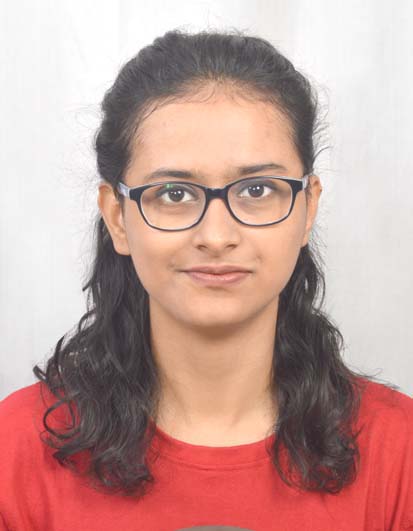
Ankita Sanyal is a doctoral candidate at Centre for West Asian Studies, Jawaharlal Nehru University, New Delhi. She worked as a summer intern at National Human Rights Commission, New Delhi in 2014 and participated in Global Initiative for Academic Networks, lecture on “Jerusalem and Abrahamic Faiths throughout the Ages” (November 2016); ICSSR-sponsored workshop on “Research Methodology Workshop in Social Sciences” (February 2019); and workshop on “Second Intensive Course on Women’s Studies in Islam and Iran” at the University of Religions and Denominations, Qom, Iran (August 2019). She currently has many publications and has presented papers in national and international conferences. She received certificate on completion of Level Two Persian Language course. Her area of interest includes minority studies, gender studies, cultural studies, education, peace and conflict studies.
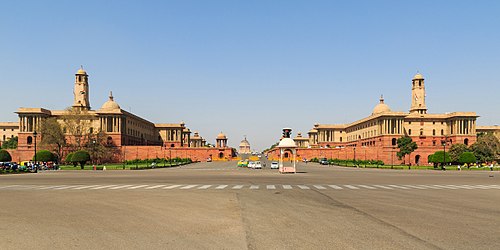
BILATERAL ISSUES BAHRAIN The CEO of LMRA highlights details on the new labour market reforms, .....
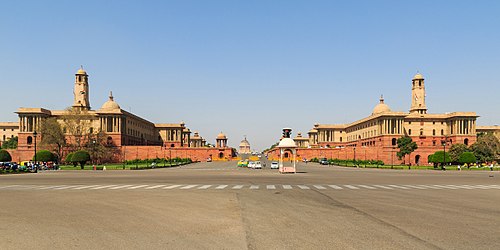
BILATERAL ISSUES EGYPT Raksha Mantri Shri Rajnath Singh to visit Egypt from September 19-20, 2.....
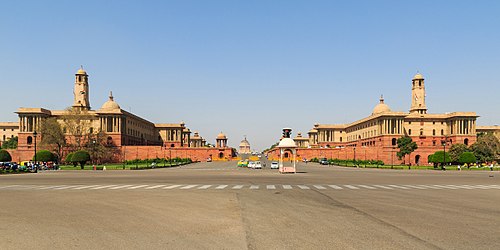
BILATERAL ISSUES IRAN Shri Sarbananda Sonowal visits Chabahar Port in Iran to Review work prog.....
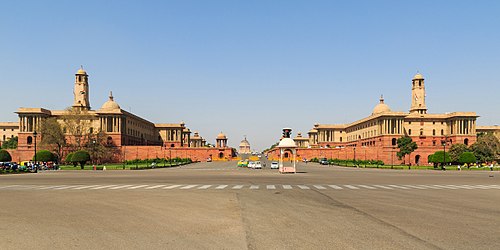
BILATERAL ISSUES BAHRAIN Deputy Chief of Naval Staff, India visits Kingdom of Bahrain, Manama,.....
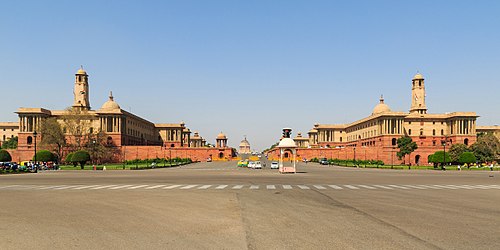
BILATERAL ISSUES BAHRAIN Buyer Seller Meet on Indian coffee between Indian exporters and Bahra.....
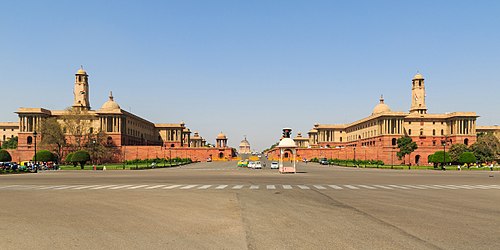
BILATERAL ISSUES BAHRAIN B2B meeting and Networking event between Bahraini & Indian IT com.....
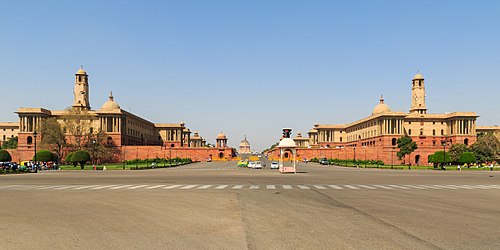
BILATERAL ISSUES OMAN Community Service Fortnight / Sewa Utsav’: ‘Celebration Thro.....
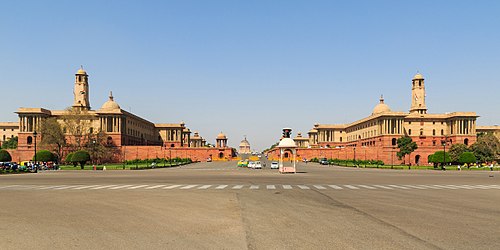
BILATERAL ISSUES BAHRAIN Virtual Buyer Seller Meet on agriculture and food products between In.....
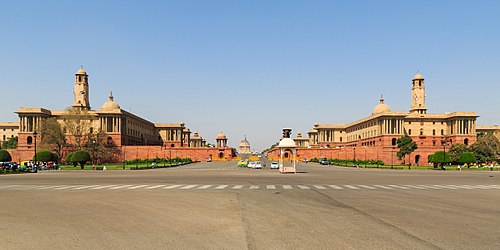
BILATERAL ISSUES BAHRAIN PM speaks on telephone with His Royal Highness Prince Salman bin Hama.....
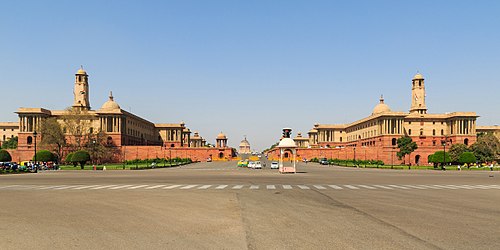
BILATERAL ISSUES ISRAEL Experts from India and Israel suggested expanding scope of India-Israe.....
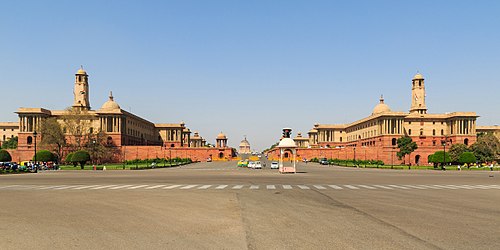
BILATERAL ISSUES BAHRAIN Press Release on virtual meeting between Minister for Education and S.....
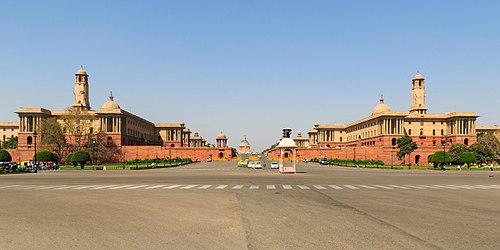
BILATERAL ISSUES BAHRAIN Ambassador’s visit to India Pavilion of Jewellery Arabia, Bahra.....
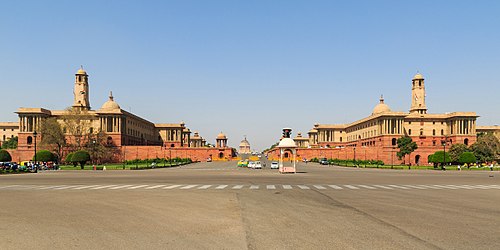
BILATERAL ISSUES BAHRAIN First consignment of GI tagged sweet dish Mihidana from West Bengal e.....
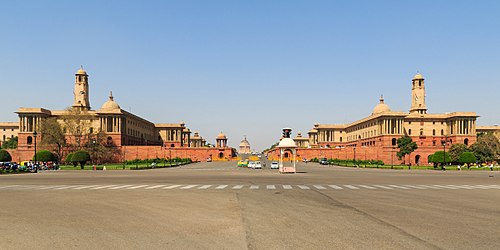
BILATERAL ISSUES ALGERIA Visit of Shri V. Muraleedharan, Minister of State for External Affair.....
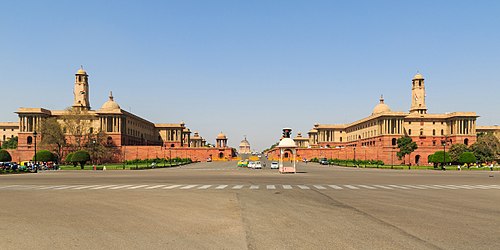
BILATERAL ISSUES ALGERIA INS TABAR undertook a bilateral Passage Exercise (PASSEX) with Algeri.....
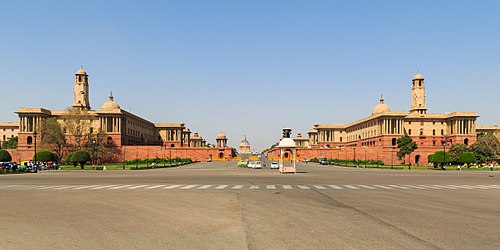
BILATERAL ISSUES BAHRAIN India expands mango export footprint to newer countries; GI certified.....
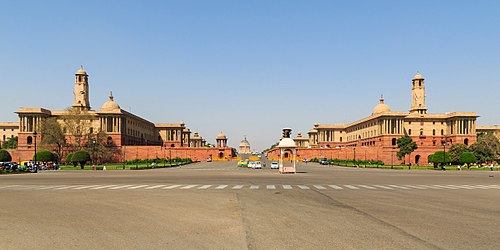
BILATERAL ISSUES ALGERIA APEDA in collaboration with Indian embassy organize virtual buyer sel.....
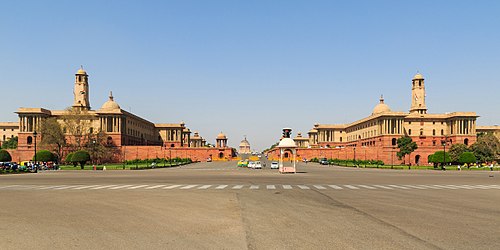
BILATERAL ISSUES EGYPT Procurement of 300,000 doses of Remdesivir from M/s EVA Pharma, Cairo, .....
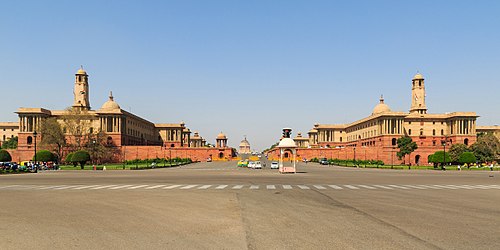
BILATERAL ISSUES BAHRAIN Third India-Bahrain High Joint Commission Meeting, New Delhi, 07 Apri.....
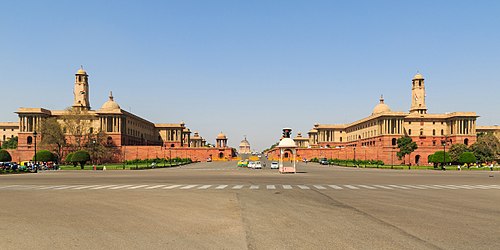
BILATERAL ISSUES BAHRAIN Indian Naval Ship Talwar’s Port Visit to Bahrain, Manama, 18 Ma.....
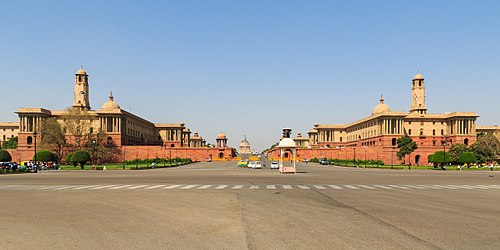
BILATERAL ISSUES IRAN Unstarred Question No.1475, Chabahar-Zaheden Railways Line, Lok Sabha, 1.....
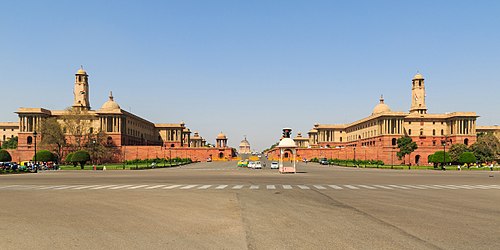
BILATERAL ISSUES IRAN Government of India strengthens cargo handling capacity of Chabahar Port.....
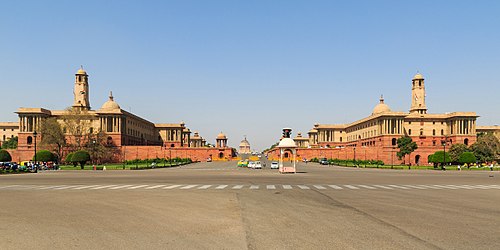
BILATERAL ISSUES BAHRAIN Warm greetings from Indian leadership on the occasion of Bahrain&rsqu.....
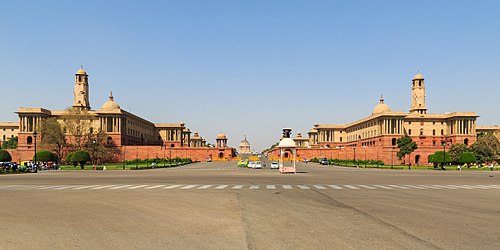
BILATERAL ISSUES BAHRAIN Prime Minister condoles the passing away of His Royal Highness Prince.....
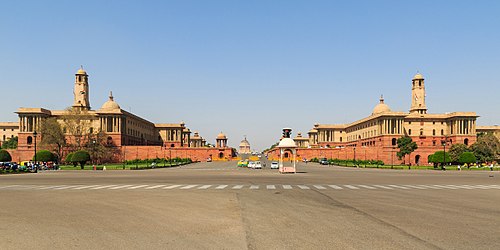
BILATERAL ISSUES BAHRAIN A B2B Webinar on Enhancing Opportunities in Pharmaceuticals and Alter.....
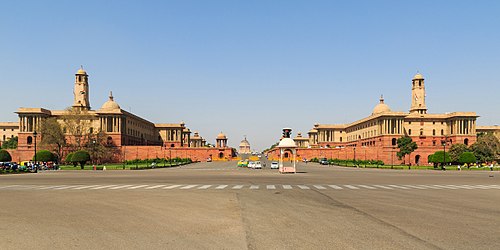
BILATERAL ISSUES IRAN Raksha Mantri Shri Rajnath Singh holds meeting with Iran's Minister .....
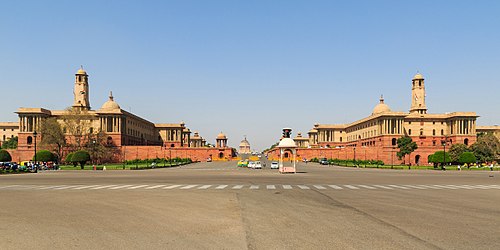
BILATERAL ISSUES ISRAEL Statement by the Official Spokesperson on the full normalisation of re.....
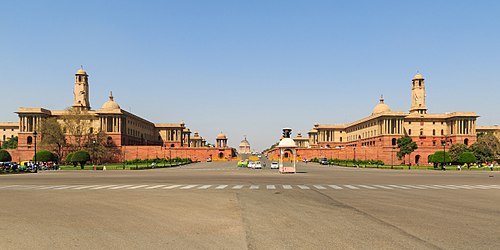
BILATERAL ISSUES ISRAEL Raksha Mantri Shri Rajnath Singh and Israeli Defence Minister telephon.....
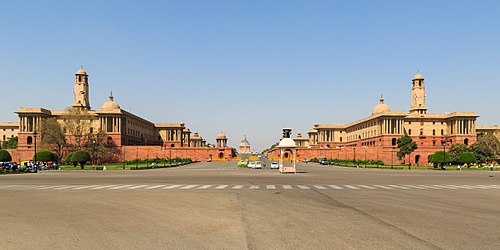
BILATERAL ISSUES IRAN Indian Navy Commences evacuation of citizens from Islamic Republic of Ir.....
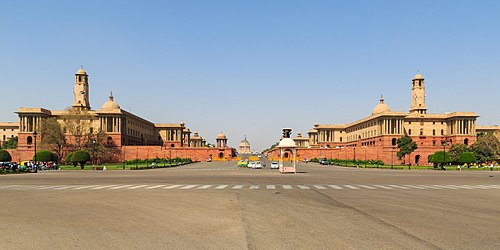
BILATERAL ISSUES EGYPT Phone call between Prime Minister Shri Narendra Modi and His Excellency.....
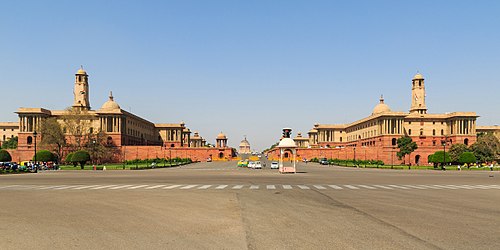
BILATERAL ISSUES BAHRAIN Telephone Conversation between PM and King of the Kingdom of Bahrain,.....
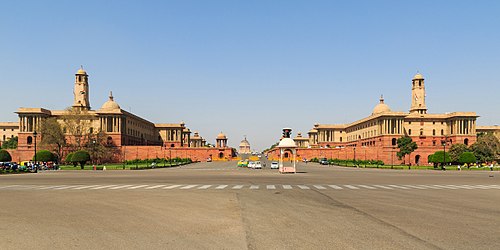
BILATERAL ISSUES IRAN IAF C-17 ‘Globemaster’ takes off for Iran, New Delhi, 9 Marc.....
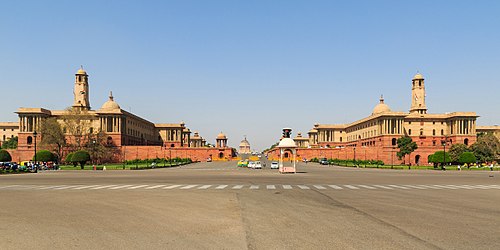
BILATERAL ISSUES IRAQ Travel Advisory for Indian Nationals travelling to Iraq, New Delhi, 19 F.....
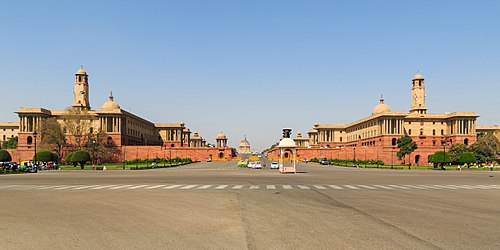
BILATERAL ISSUES EGYPT Photo exhibition on “Making of Indian Constitution and Life of Dr.....
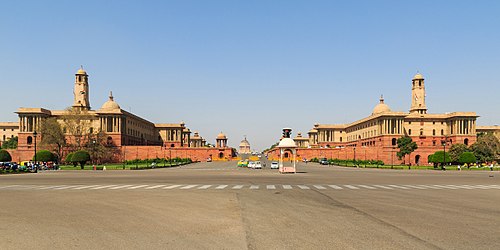
BILATERAL ISSUES EGYPT Prize Distribution Function of “Glimpses of India” Painting.....
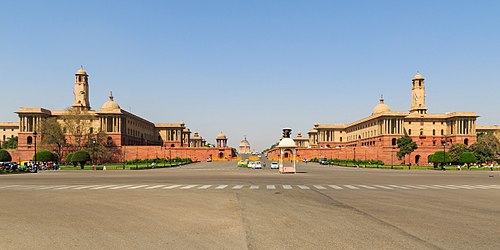
BILATERAL ISSUES EGYPT Consular Camp in Port Said on 22 November 2019, Cairo, 19 November 2019.....
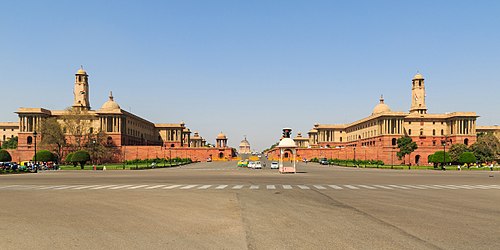
BILATERAL ISSUES JORDAN Meeting between Prime Minister and King of Jordan in Riyadh, Riyadh, 2.....
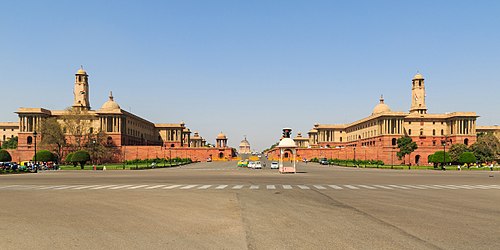
BILATERAL ISSUES a. IRAN Foreign Office Consultations between India and Iran, Tehran, 16 Septe.....
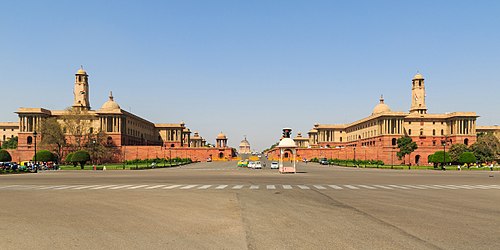
BILATERAL ISSUES a. BAHRAIN State Visits of Prime Minister to Bahrain (August 24-25, 2019), Ne.....
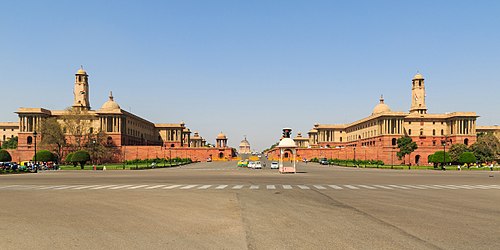
BILATERAL ISSUES BAHRAIN Cabinet approves Memorandum of Understanding between India and B.....
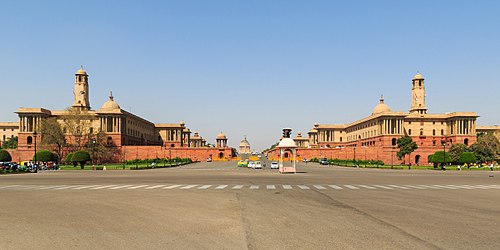
BILATERAL ISSUES IRAN UNSTARRED QUESTION No. 662 MPACT OF AMERICAN BAN ON CHABAHAR PORT, Rajya.....
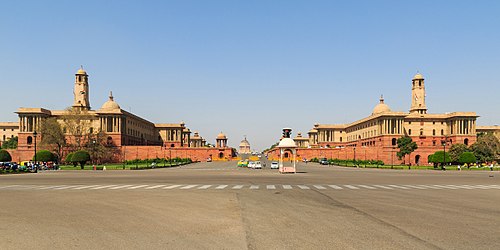
BILATERAL ISSUES IRAN 11th India Iran Joint Consular Committee Meeting (JCCM), New Delhi, 16 M.....
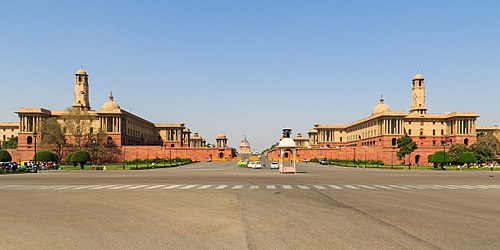
IRAN India extends relief assistance to Iran after recent floods, Tehran, 17 April 2019 In lin.....
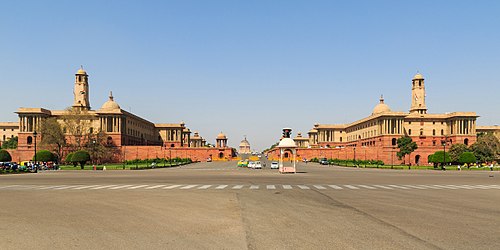
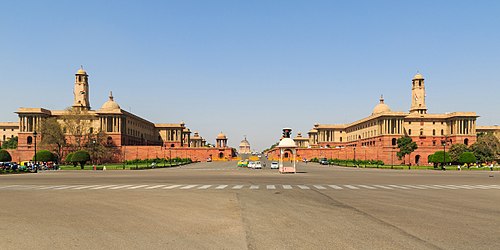
BILATERAL ISSUES EGYPT India condemns terrorist attacks in Egypt, New Delhi, 22 February 2019 .....
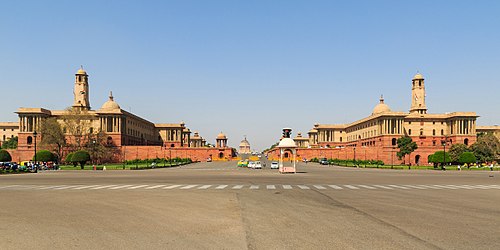
BILATERAL ISSUES ALGERIA Visit of Foreign Minister of Algeria to India (January 30-February 01.....
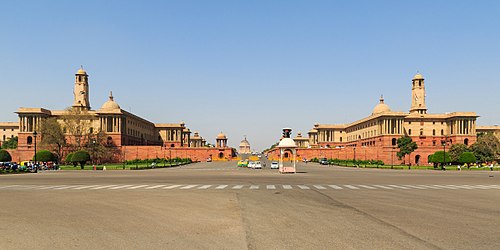
ALGERIA Cabinet approves Agreement between India and Algeria on Cooperation in the field of Space.....
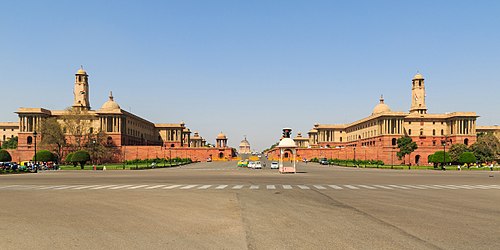
BILATERAL ISSUES IRAQ Jaipur Foot Camp in Karbala, Karbala, 21 November 2018 A 40-day Artif.....
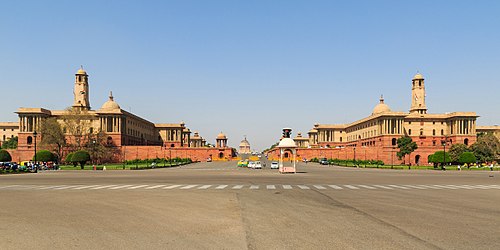
BILATERAL ISSUES KUWAIT Visit of External Affairs Minister to State of Qatar and State of Kuwa.....
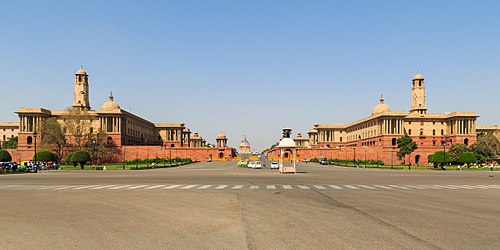
BILATERAL ISSUES EGYPT Cabinet approves MoU between India and Egypt on cooperation in the fiel.....
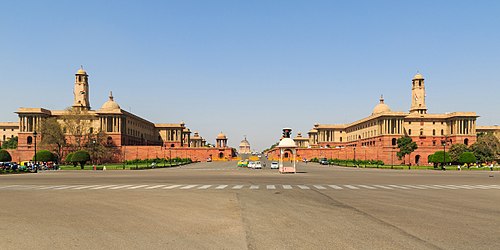
BILATERAL ISSUES BAHRAIN Question No. 3566, Unpaid Workers in Bahrain, Lok Sabha, New Delhi, 0.....
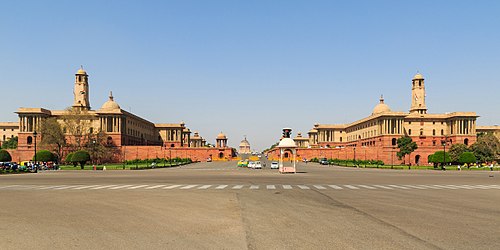
BILATERAL ISSUES BAHRAIN Visit of External Affairs Minister to Manama, Bahrain (July 14-15, 20.....
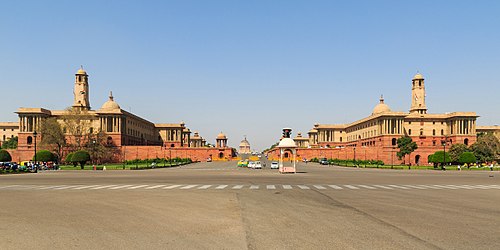
BILATERAL ISSUES BAHRAIN Cabinet approves MoU between India and Bahrain on cooperation in the .....
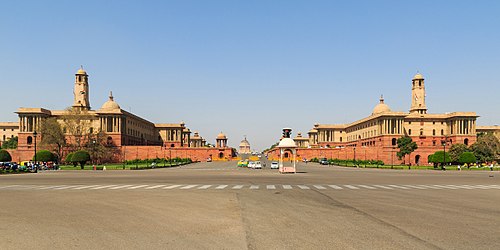
BILATERAL ISSUES IRAN External Affairs Minister’s meeting with Iranian Foreign Minister,.....
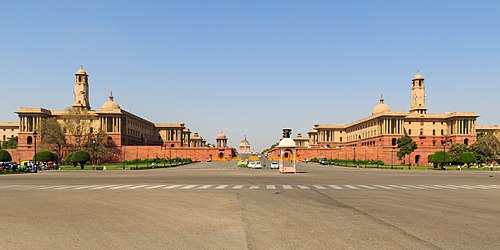
BILATERAL ISSUES IRAN Cabinet approves MoU between India and Iran on the establishment of an e.....
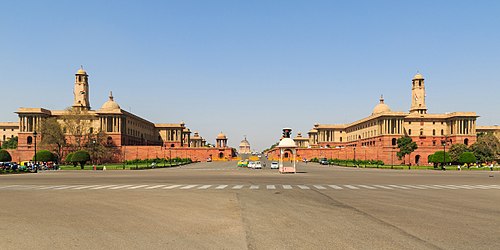
(Monthly Digest of Official Indian Statements on Middle East) BILATERAL ISSUES EGYPT Mr. Sa.....
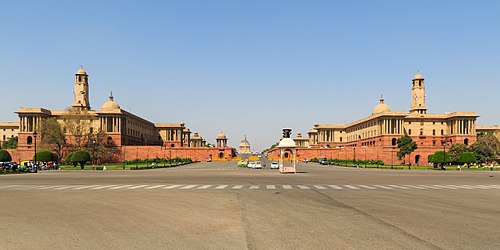
(Monthly Digest of Official Indian Statements on Middle East) BILATERAL ISSUES IRAN Launch .....
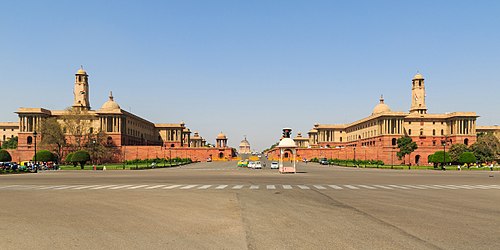
(Monthly Digest of Official Indian Statements on Middle East) BILATERAL ISSUES &.....
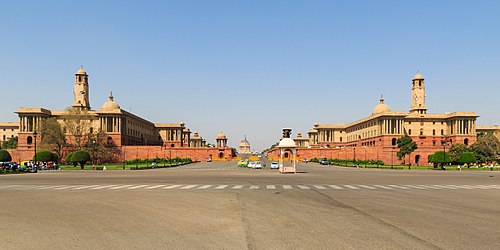
BILATERAL ISSUES a. EGYPT 1. H.E. Col. Rajyavardhan Singh Rathore, Minister of State for Youth.....
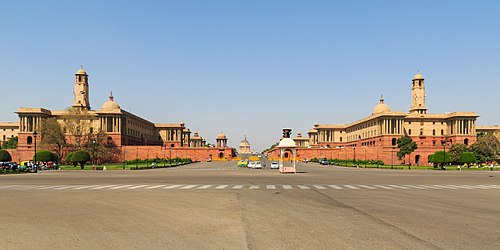
BILATERAL ISSUES a. IRAQ 1. India’s position on the Referendum held in the Kurdistan Reg.....
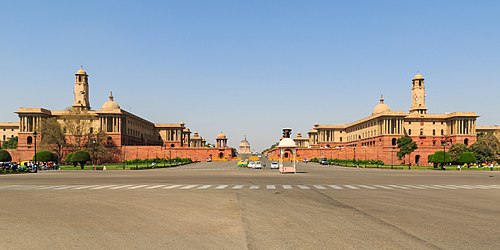
BILATERAL ISSUES IRAN 1. 6th Meeting of Joint Committee on Ports and Maritime Cooperation.....

BILATERAL ISSUES BAHRAIN Visit of External Affairs Minister to Manama, Bahrain (July 14-15, 2018), New D.....

BILATERAL ISSUES BAHRAIN Cabinet approves MoU between India and Bahrain on cooperation in the field of H.....

BILATERAL ISSUES IRAN External Affairs Minister’s meeting with Iranian Foreign Minister, New Delhi.....

BILATERAL ISSUES IRAN Cabinet approves MoU between India and Iran on the establishment of an expert grou.....

(Monthly Digest of Official Indian Statements on Middle East) BILATERAL ISSUES EGYPT Mr. Sameh Hassan.....

(Monthly Digest of Official Indian Statements on Middle East) BILATERAL ISSUES IRAN Launch of Admissi.....

(Monthly Digest of Official Indian Statements on Middle East) BILATERAL ISSUES .....
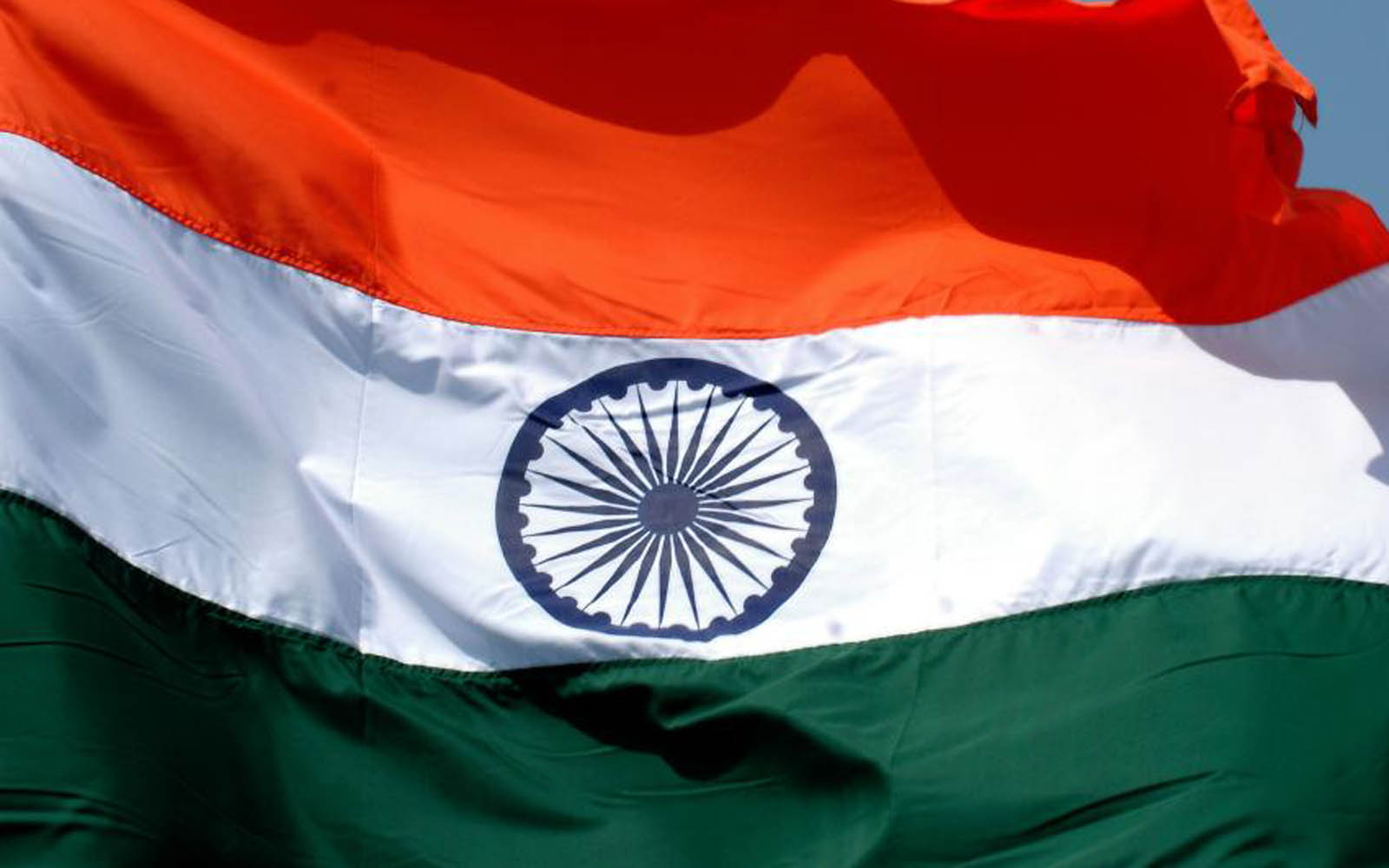
INDIA WATCH, JULY 2018, ISSUE NO. 102 POLITICAL IRAN US tells India, China to end o.....
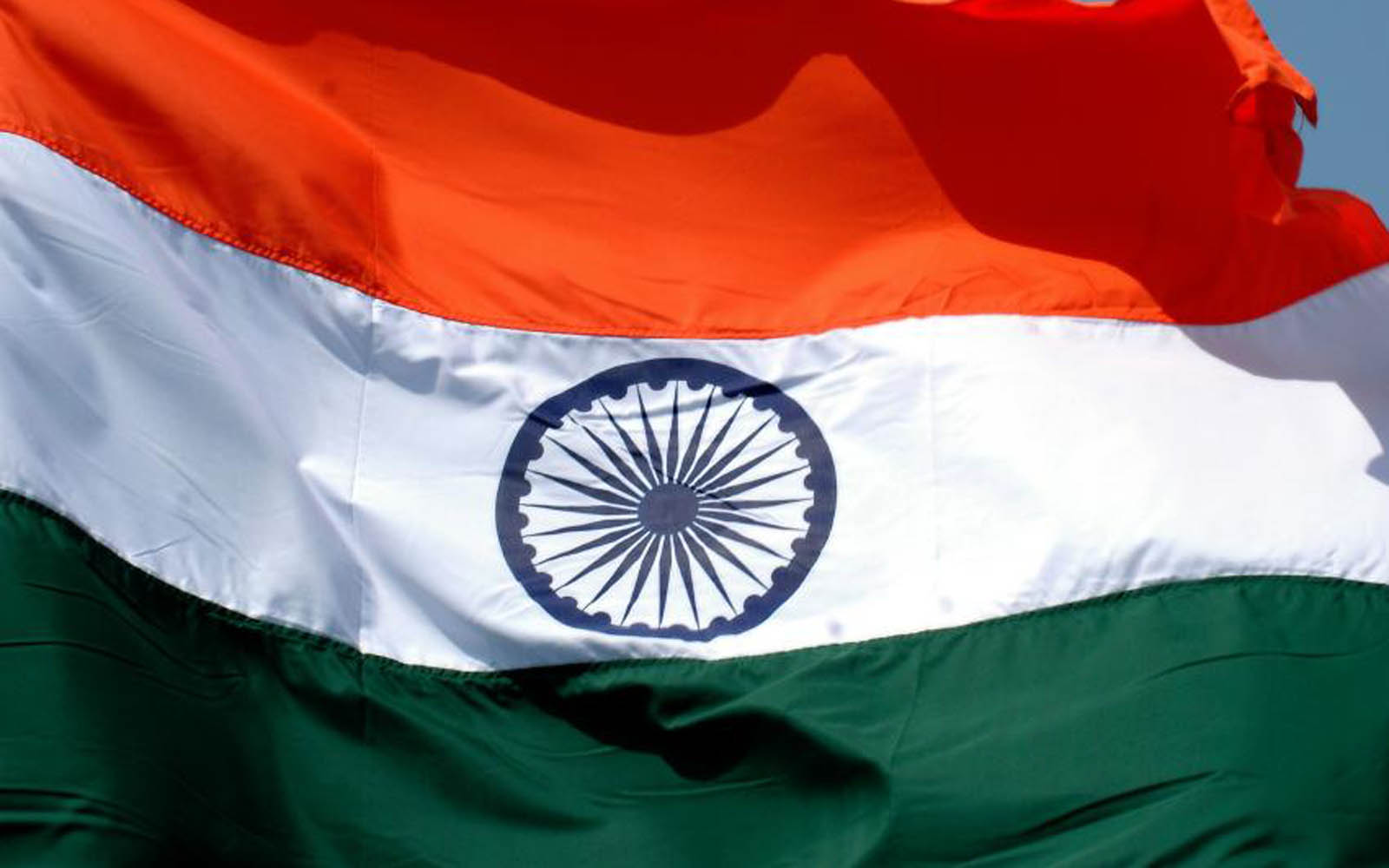
INDIA WATCH, JUNE 2018, ISSUE NO. 101 POLITICAL EGYPT India-Egypt economic ties improving: out.....
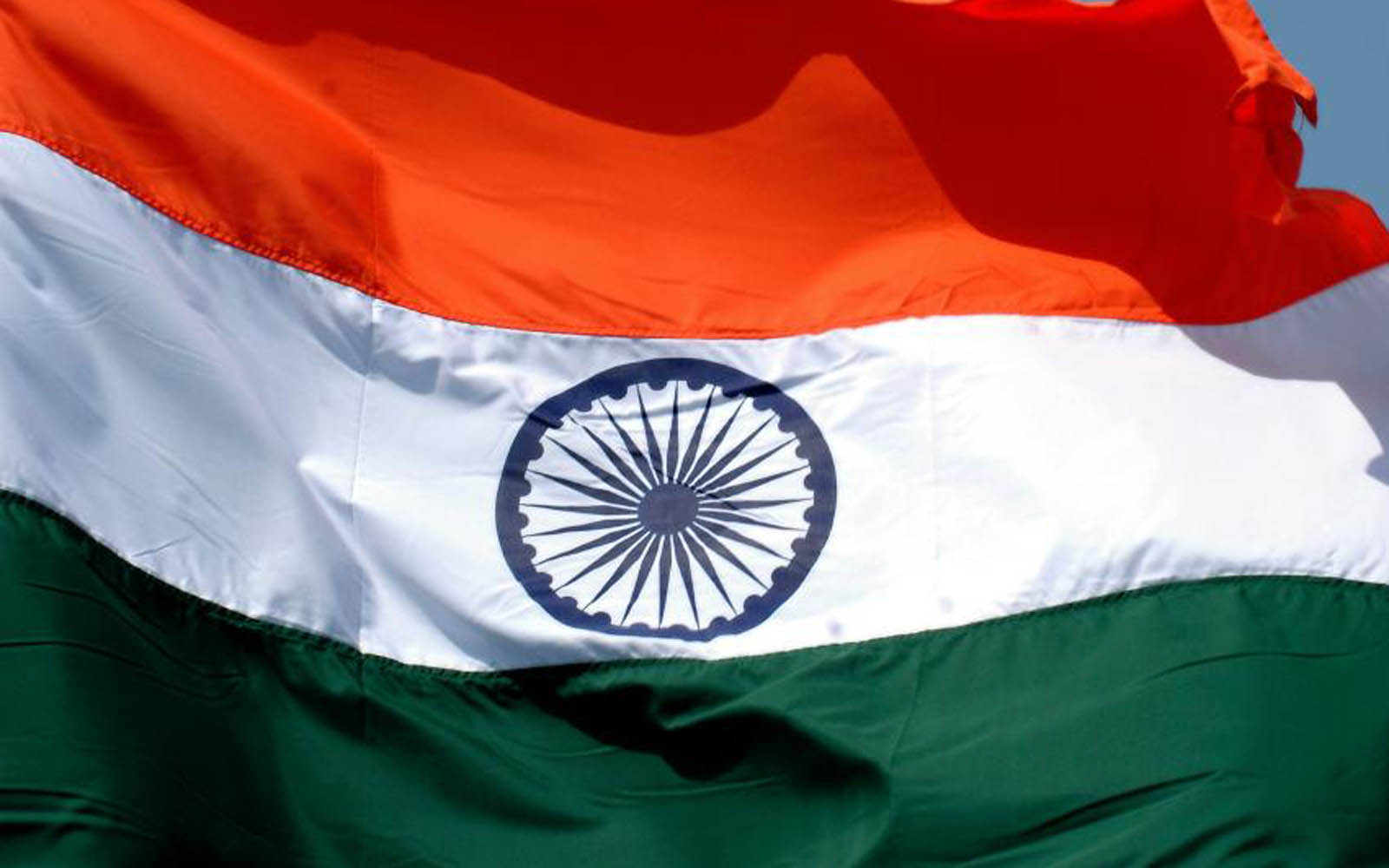
INDIA WATCH, MAY 2018, ISSUE NO.100 POLITICAL IRAN Iran urges for restraint in Jammu and Ka.....

BILATERAL ISSUES IRAN 1. 6th Meeting of Joint Committee on Ports and Maritime Cooperation between t.....
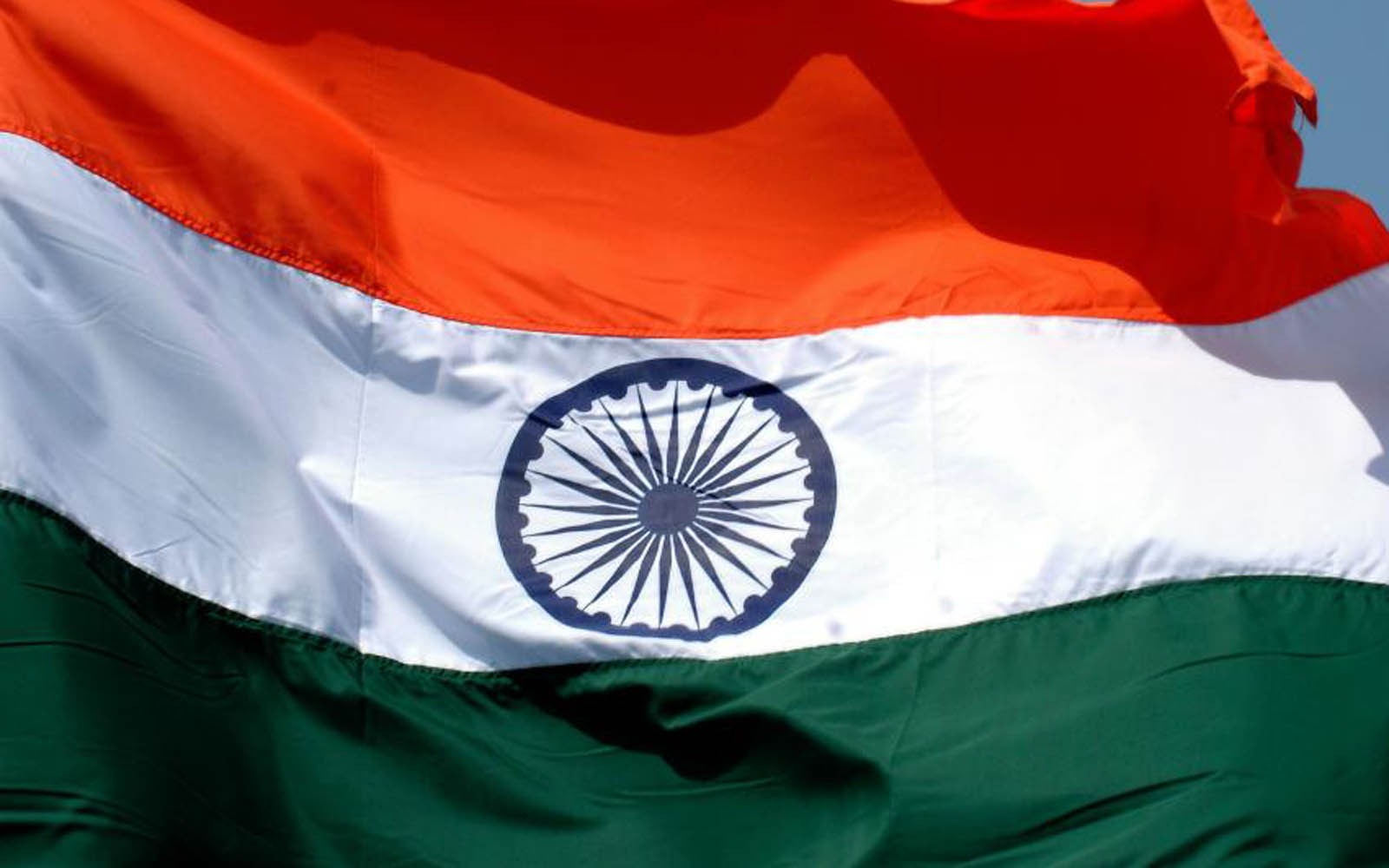
POLITICAL EGYPT Egypt signs agreement to join International Solar Alliance Cairo, Sunday, 11 March 20.....
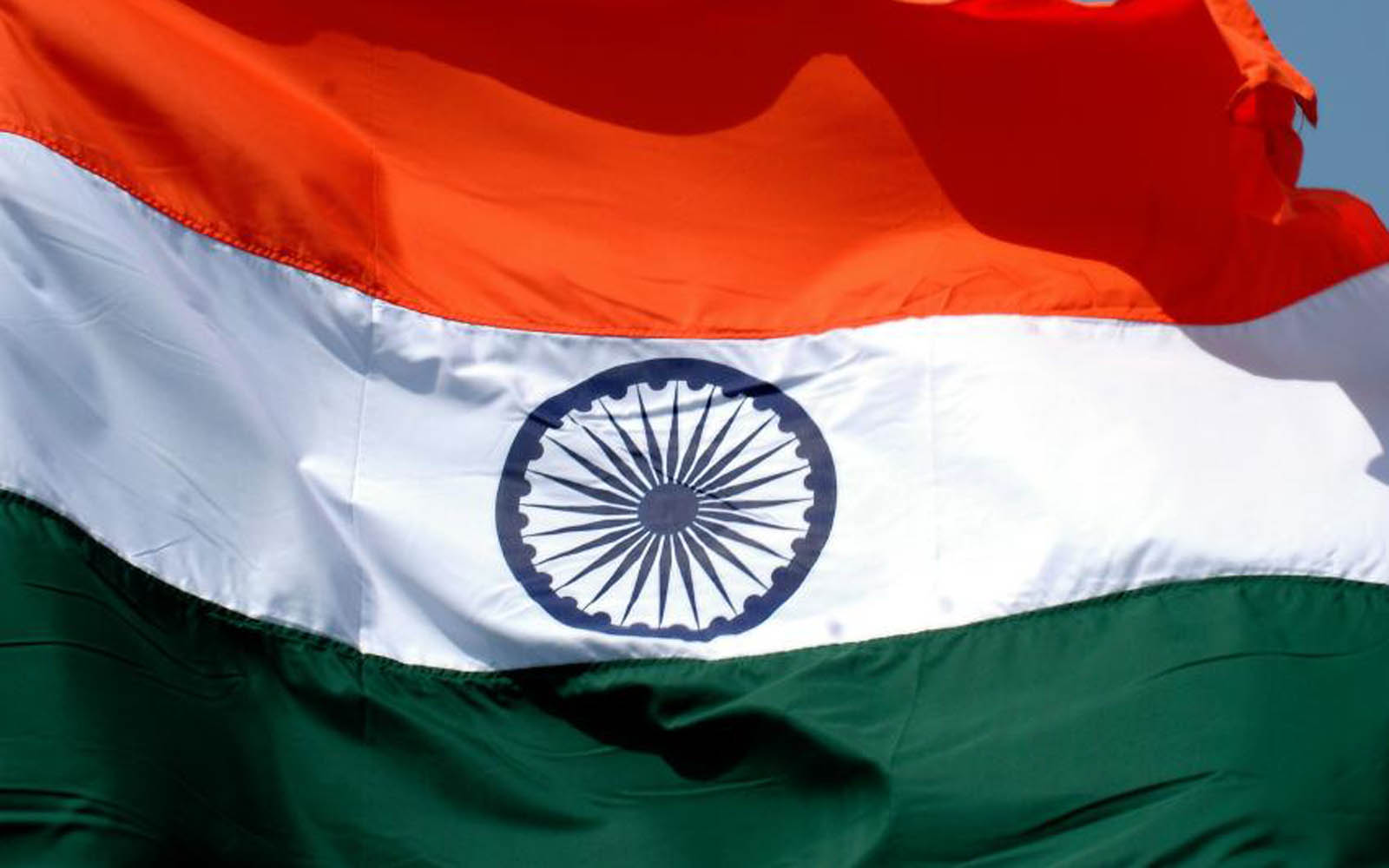
POLITICAL IRAN Iran president meets with religious scholars in Hyderabad Hyderabad, Friday, 16 Februa.....
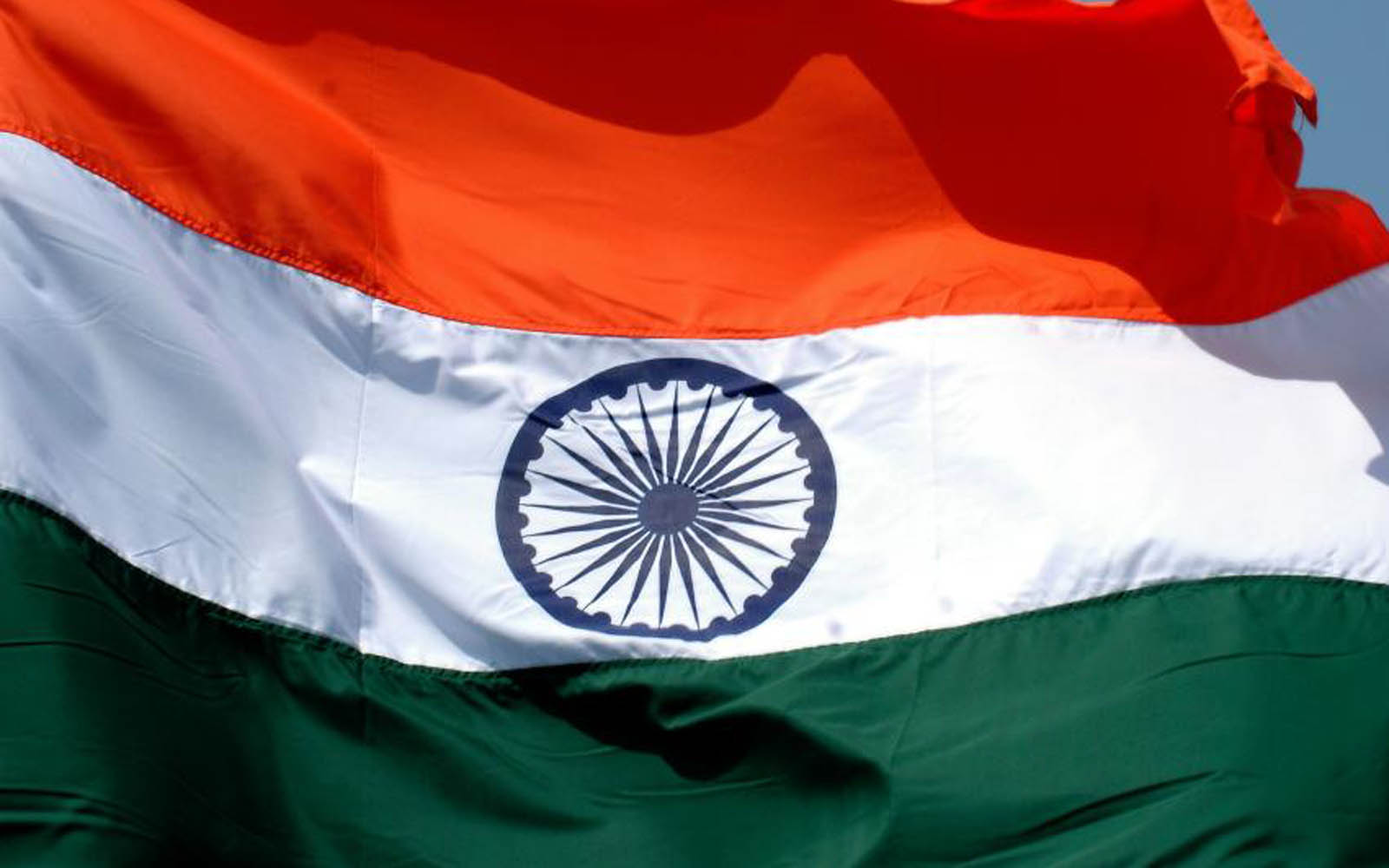
POLITICAL BAHRAIN Rahul Gandhi in Bahrain New Delhi, Tuesday, 9 January 2018 Addressing NRIs in Ba.....
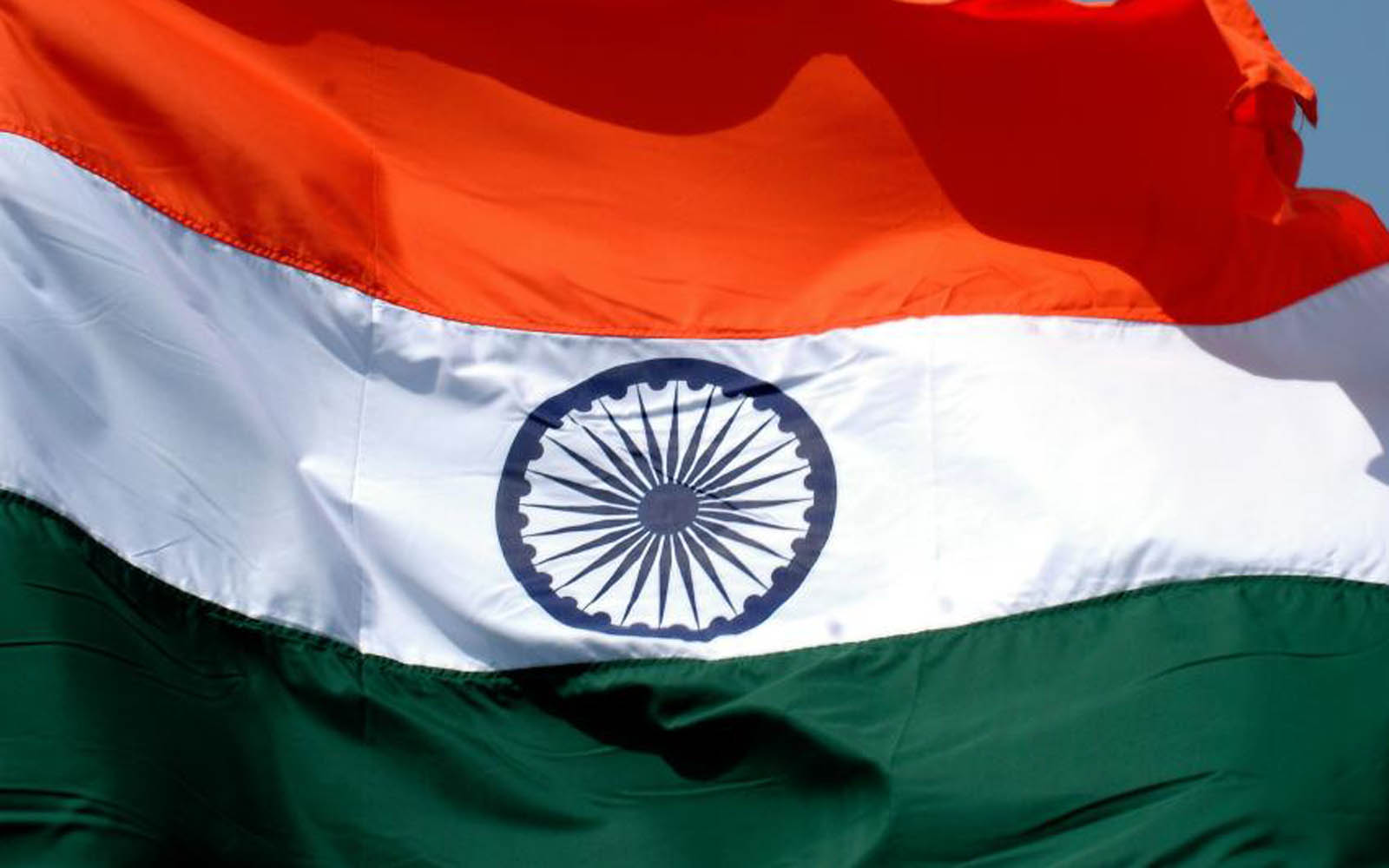
1 January 2018 POLITICAL EGYPT India to set up IT centre in Egypt's Al Azhar University.....
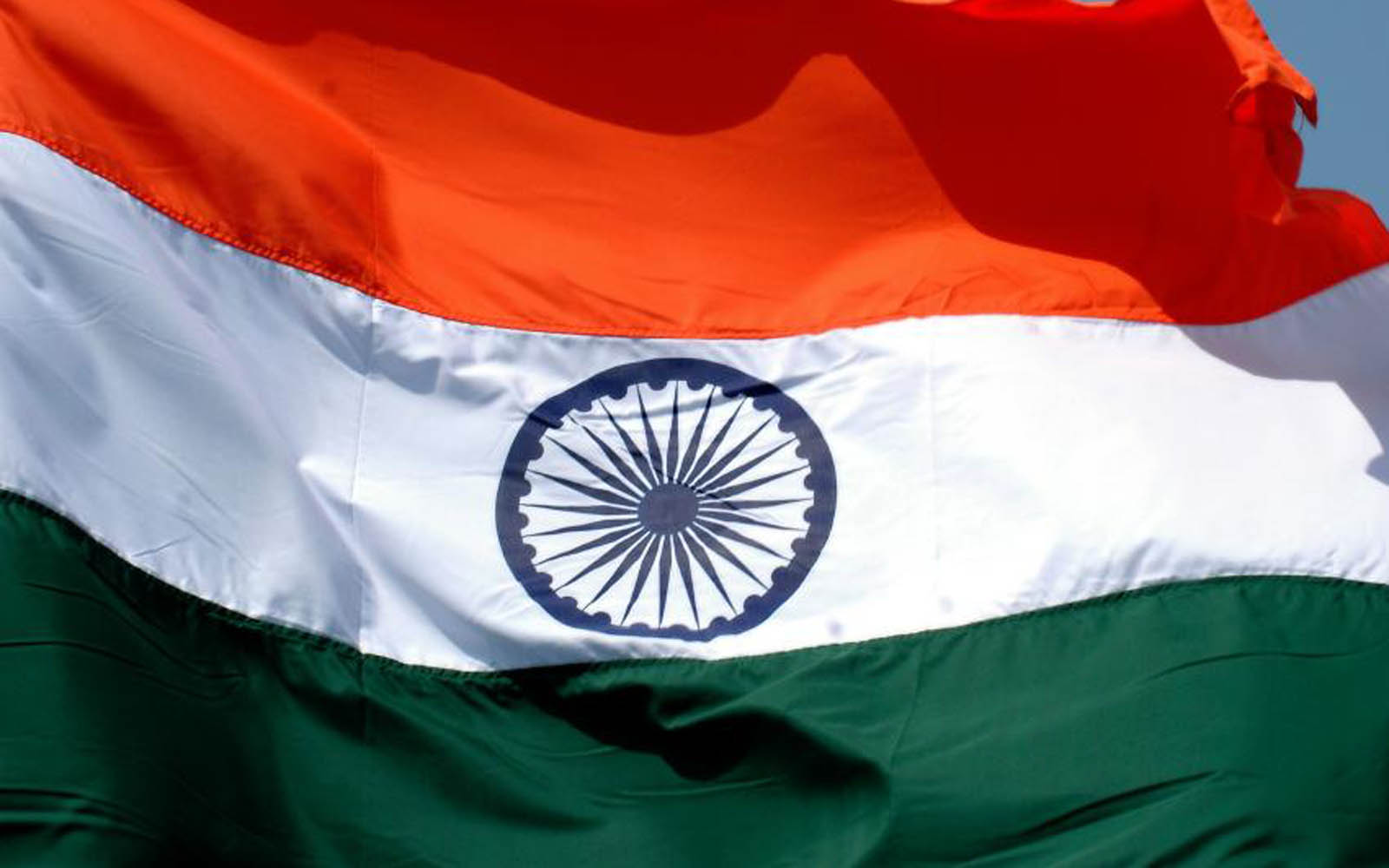
POLITICAL ISRAEL Ministry of Defence scraps $500 million Israeli missile deal, wants DRDO to make in&nbs.....
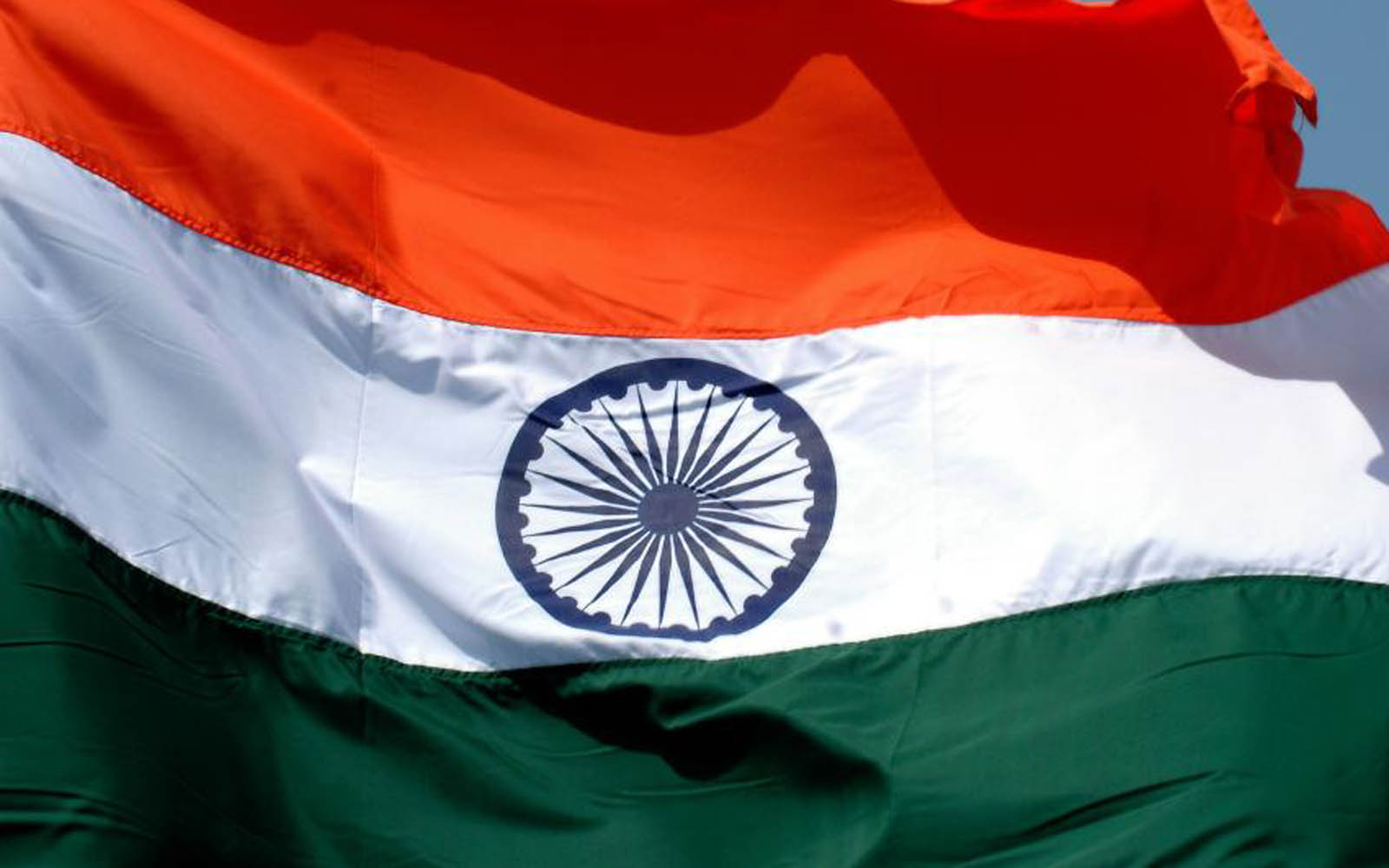
POLITICAL IRAN India defends diplomatic ties with Iran in talks with Rex Tillerson New Delh.....
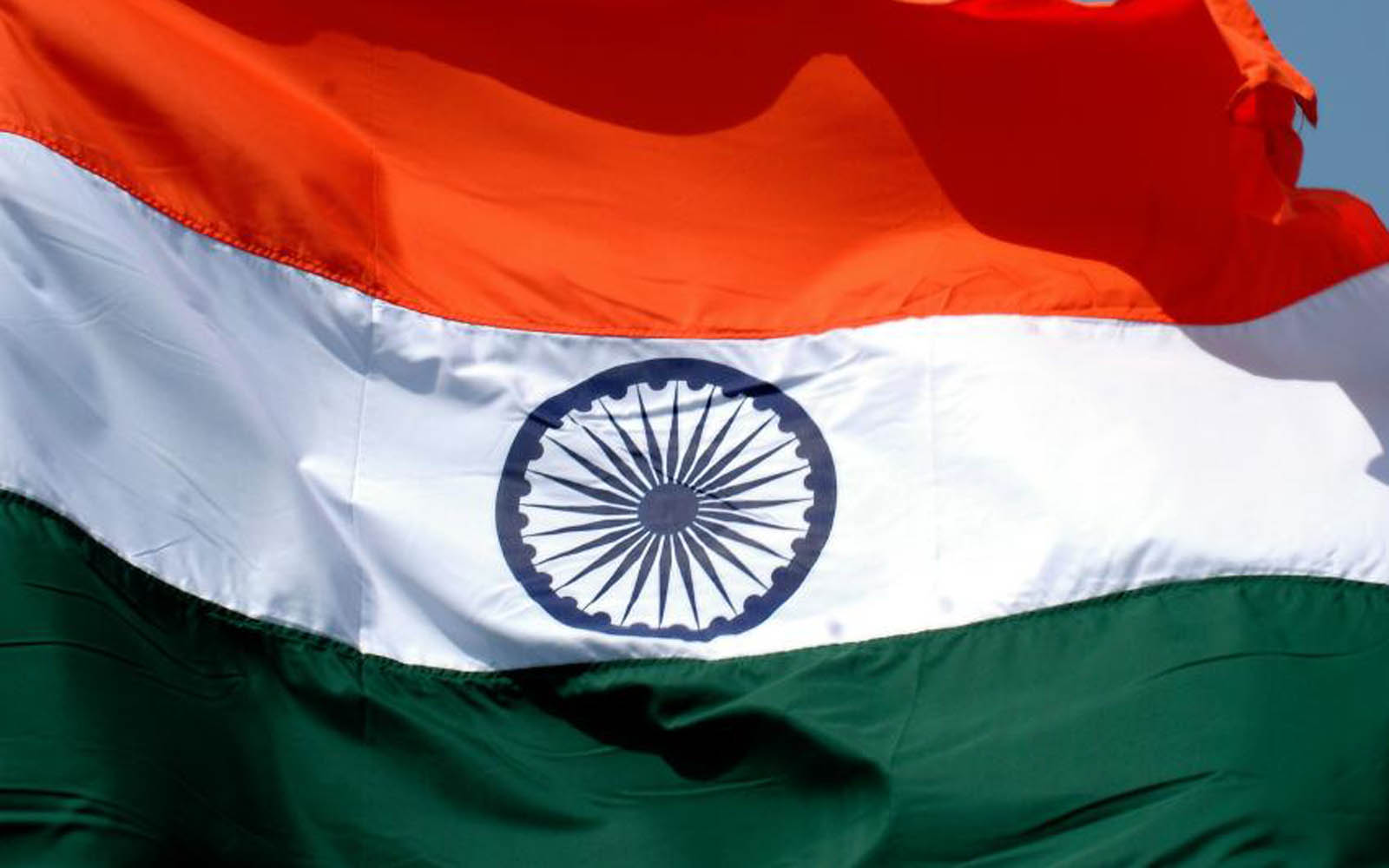
POLITICAL ISRAEL India to bid for Israel oil-and-gas exploration blocks New Delhi, Tuesday, 5 Septemb.....
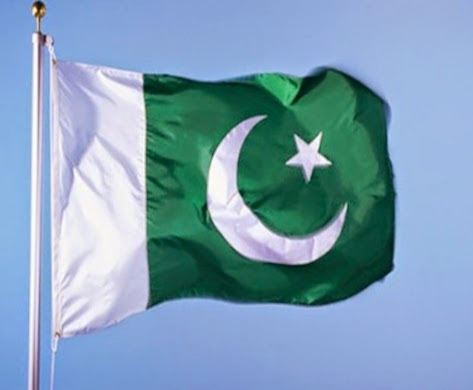
Pakistan Watch, August Issue 2018, No. 93, Divya Malhotra POLITICAL ISSUES TUNISIA Pakista.....
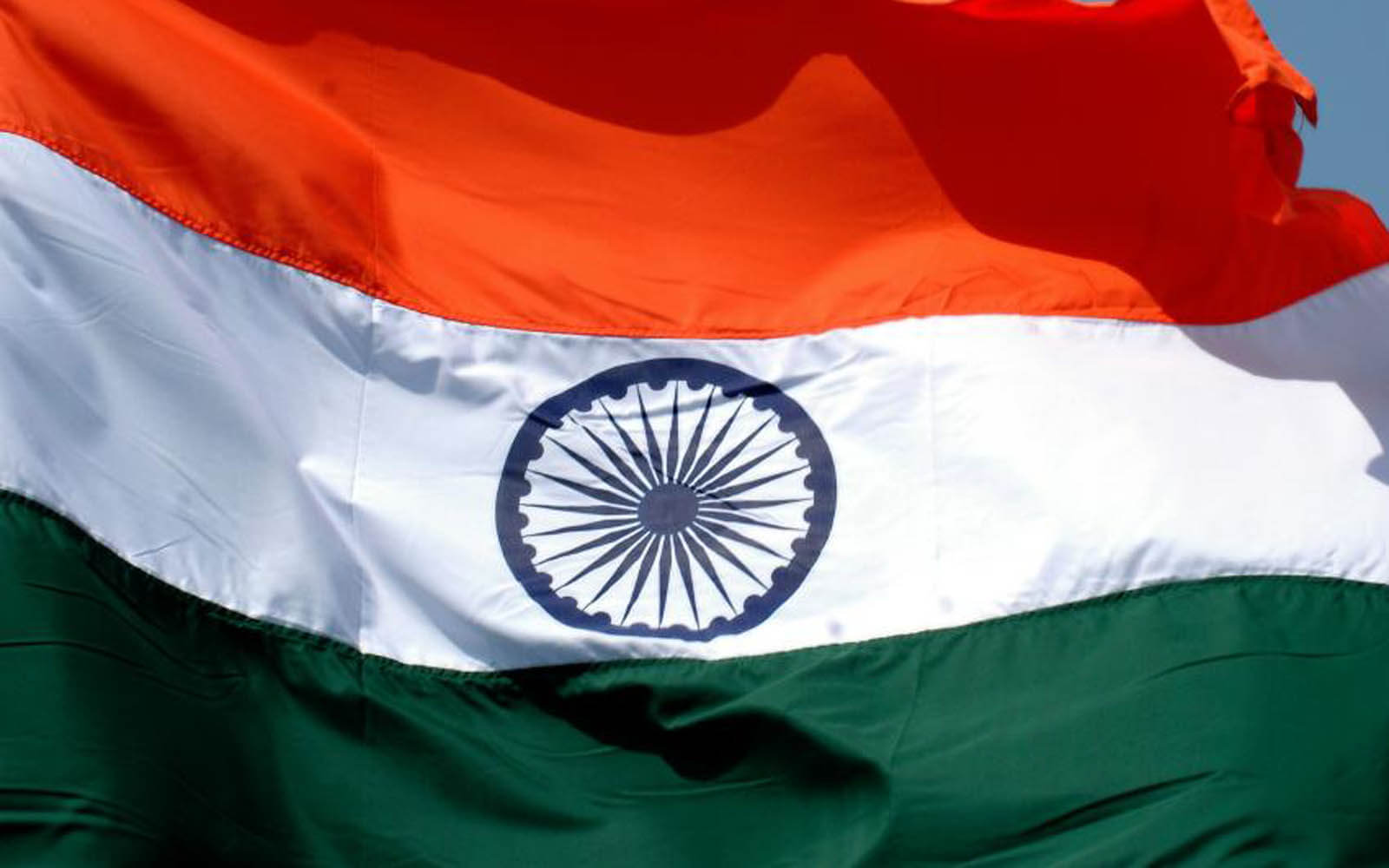
POLITICAL ISSUES EGYPT 1. India, Egypt to support each other’s candidates for UNESCO, ICJ .....
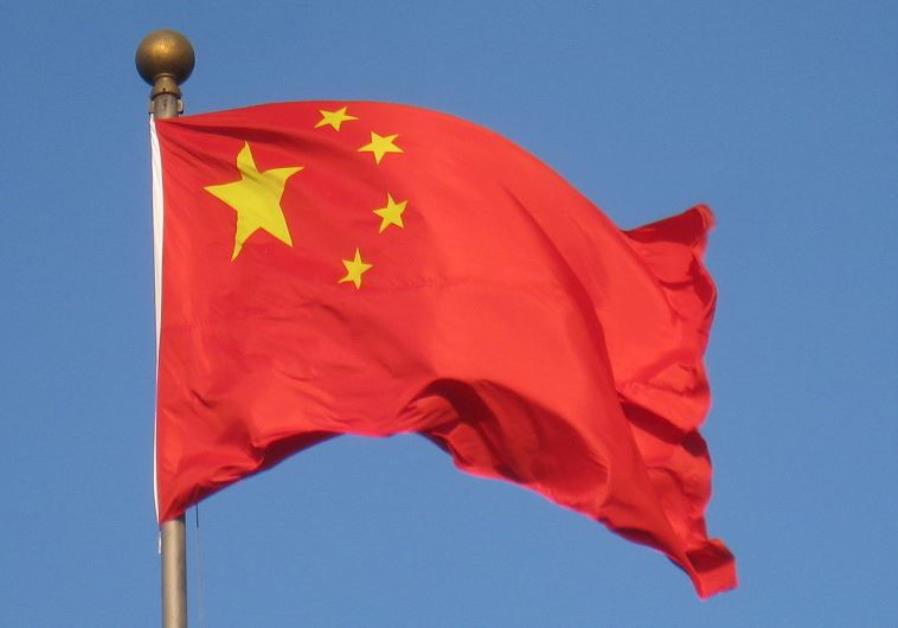
POLITICAL IRAN China urges Salvaging of Iran nuclear deal Beijing, Wednesday, 9 May 2018 China has.....
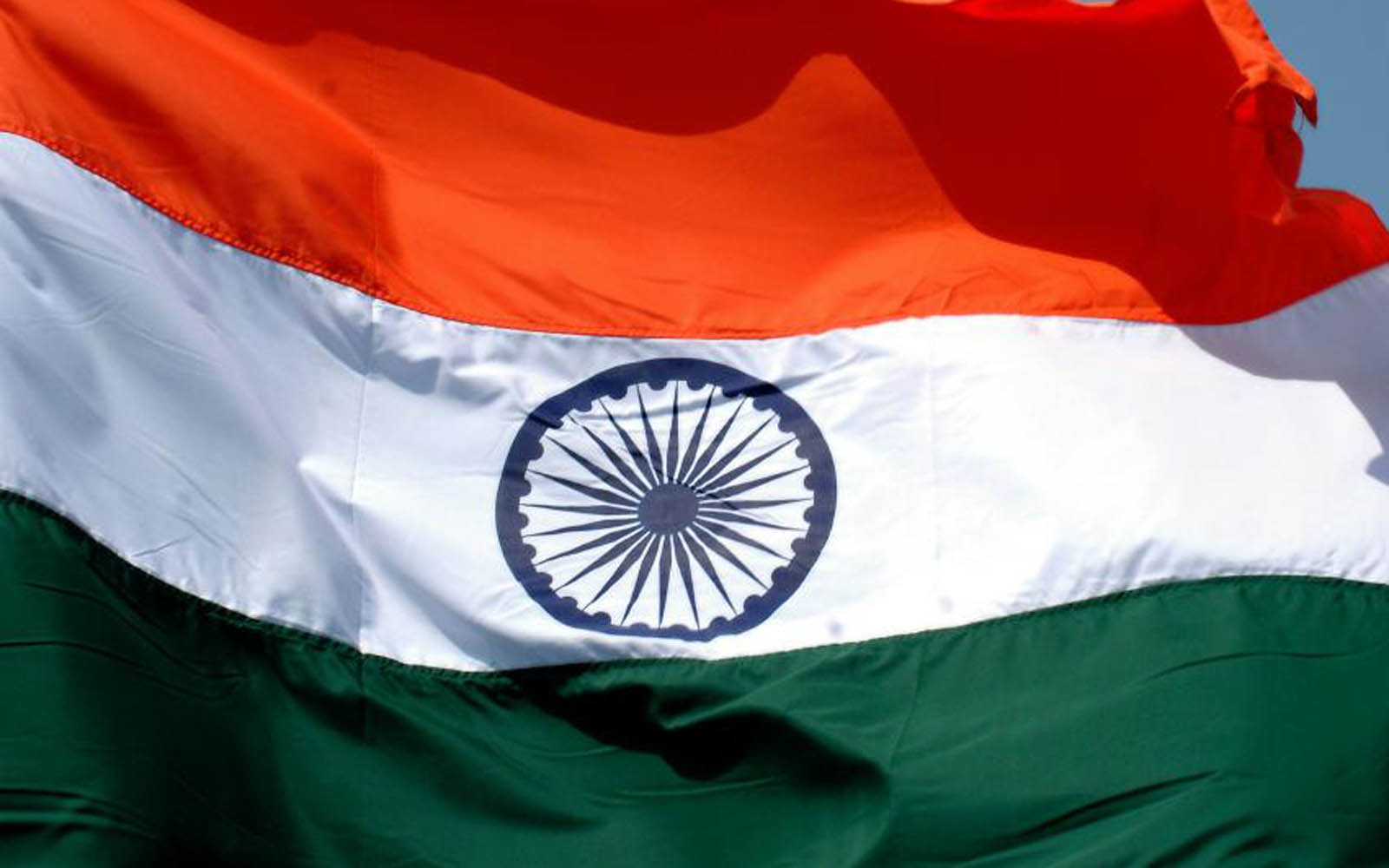
POLITICAL ISSUES IRAN 1. Cabinet approves Bilateral MoU between India and Iran New Delhi, Wednesday, .....
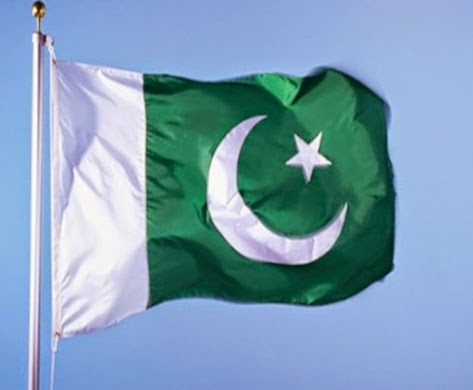
IRAN Defence Minister of Iran meets Pakistan’s Minister for Defence Engineer Islamabad, Saturday,.....
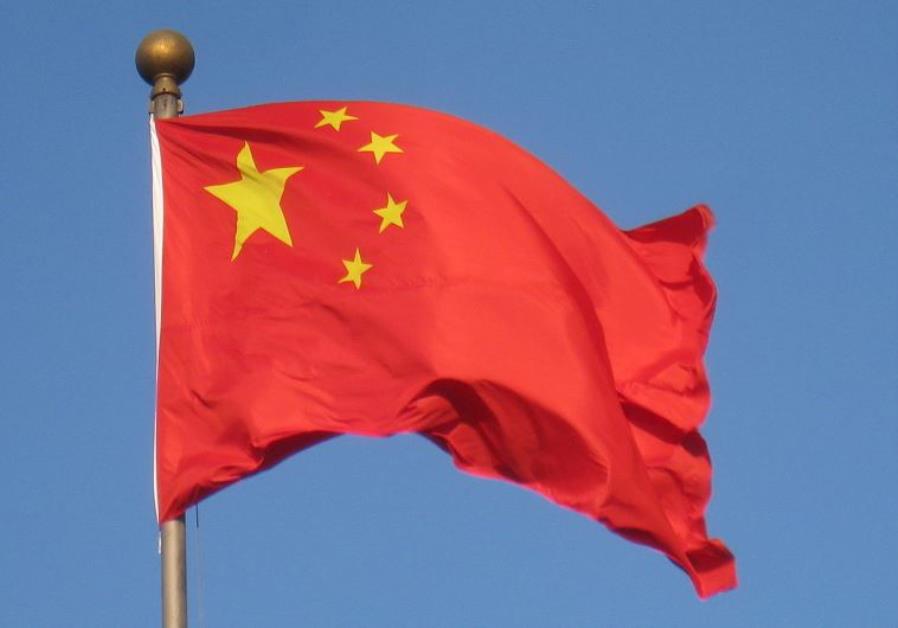
ECONOMIC KUWAIT Kuwait calls for increase in investment from China Kuwait City, Tuesday, 20 March 201.....
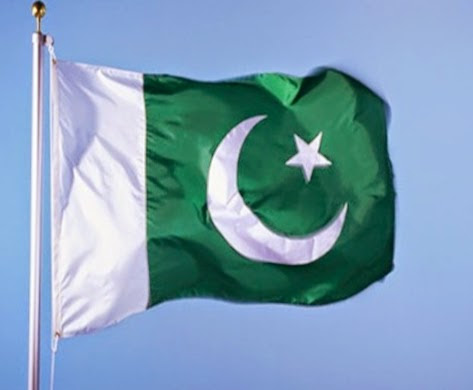
POLITICAL ISSUES EGYPT The Grand Mufti of Egypt visited Pakistan Islamabad, Thursday, 22 March 2018.....
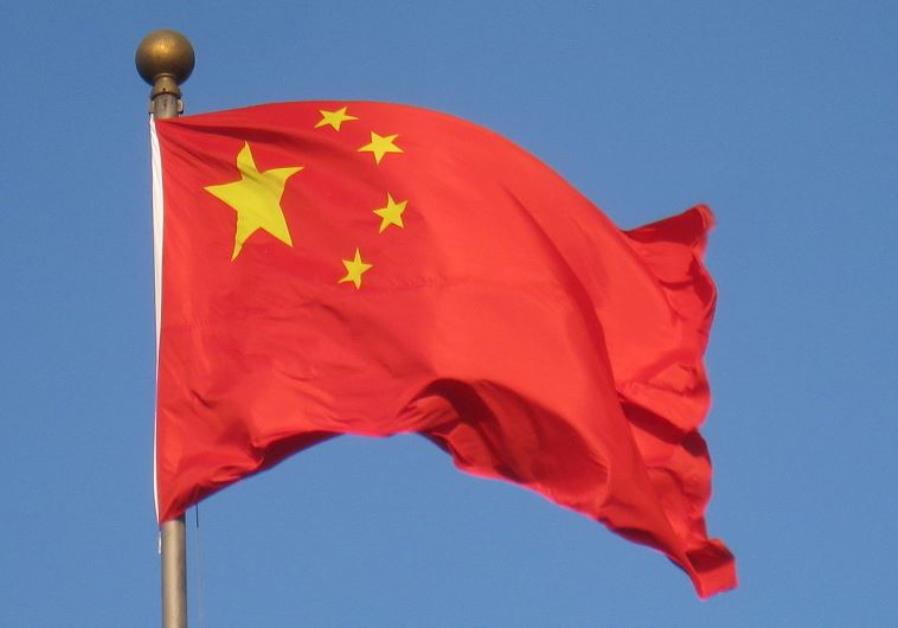
POLITICAL ISSUES IRAN China sets up traffic control area Beijing, Thursday, 1 February 2018 China .....
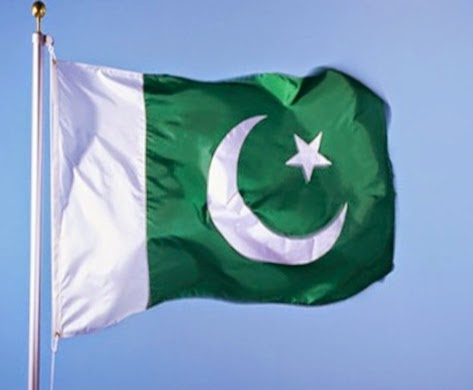
POLITICAL ISSUES EGYPT Six arrested Pakistanis released by Egypt’s court Islamabad, Wednesday,.....
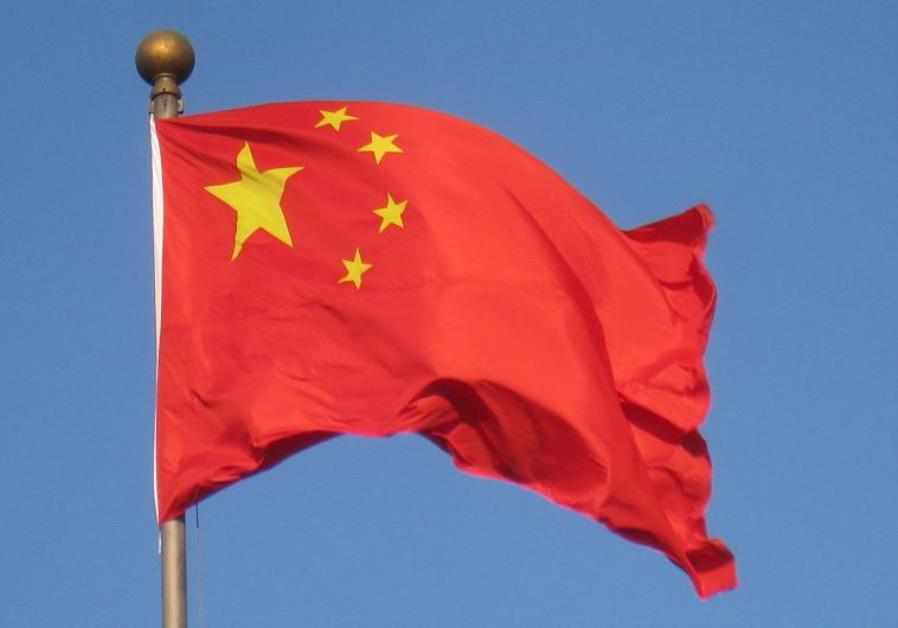
POLITICAL ISSUES IRAN China calls for cherishing Iran Nuclear Deal Beijing, Saturday, 13 January 2018.....
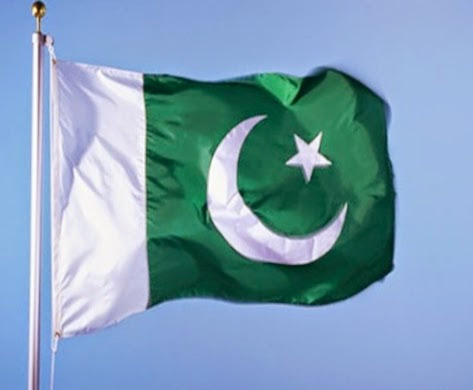
POLITICAL ISSUES LEBANON Pakistan, Lebanon discuss bilateral ties Islamabad, Tuesday, 2 January 2018.....
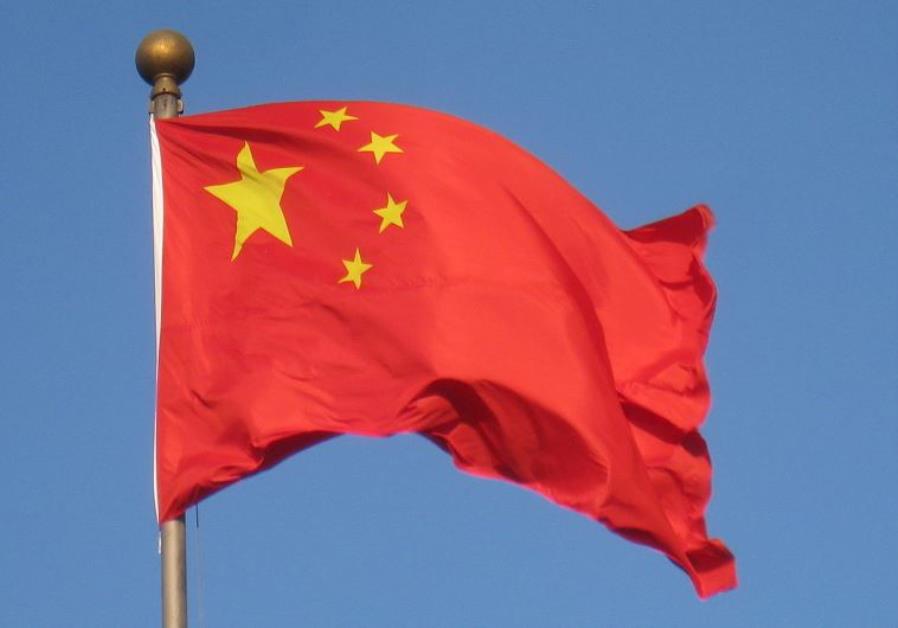
POLITICAL ISSUES IRAN Iran and China to boost their military relations Beijing, Tuesday, 12 December.....
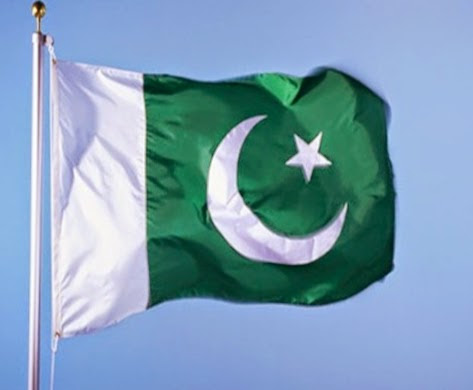
POLITICAL ISSUES QATAR Pakistan, Lebanon discuss bilateral ties Islamabad, Tuesday, 5 December 2017 .....
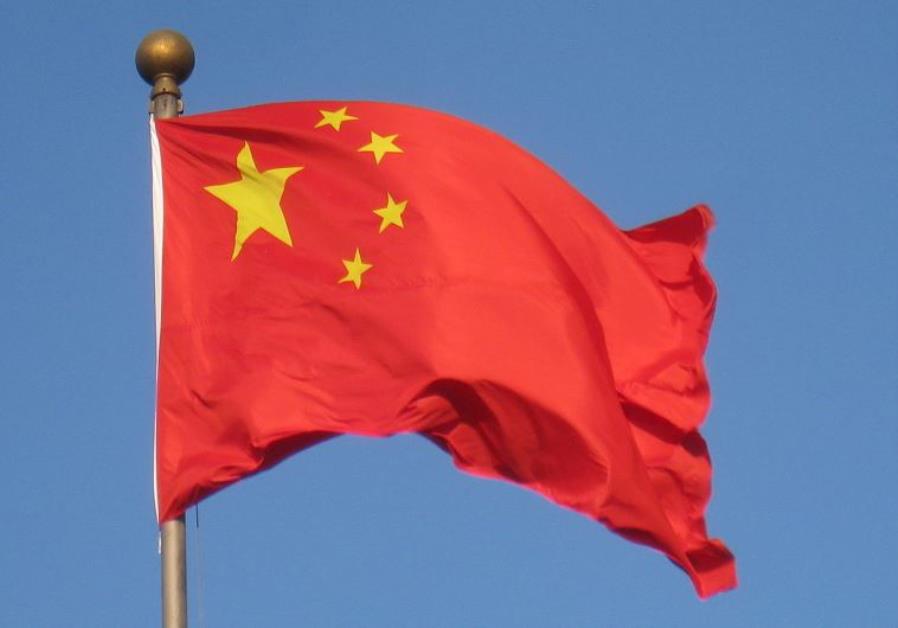
POLITICAL ISSUES EGYPT China-Egypt vows to promote comprehensive strategic partnership Sharm el Sheik.....
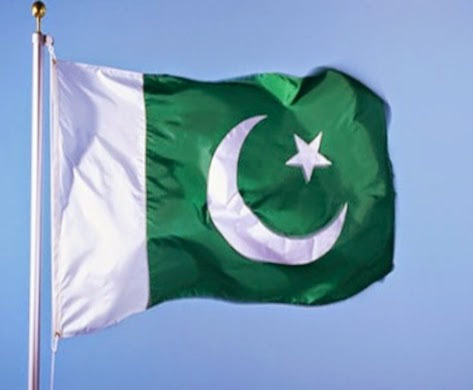
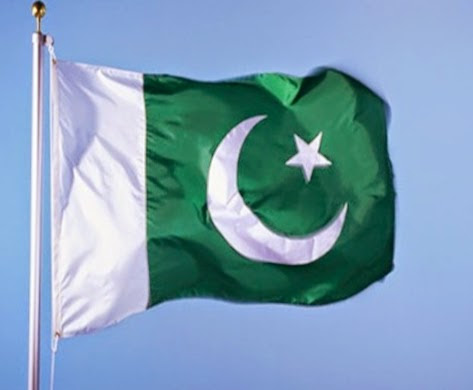
POLITICAL ISSUES BAHRAIN Bahrain health minister visits Pakistan Islamabad, Sunday, 8 .....
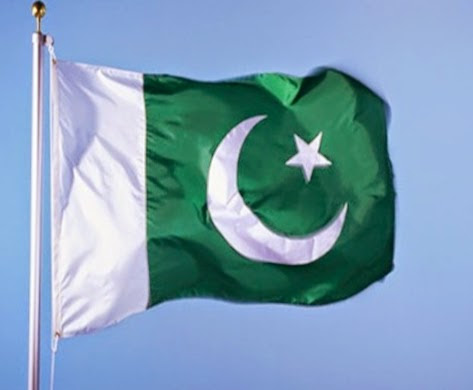
POLITICAL ISSUES ARAB LEAGUE 1.Pakistan’s role in regional peace appreciated by Arab league Is.....
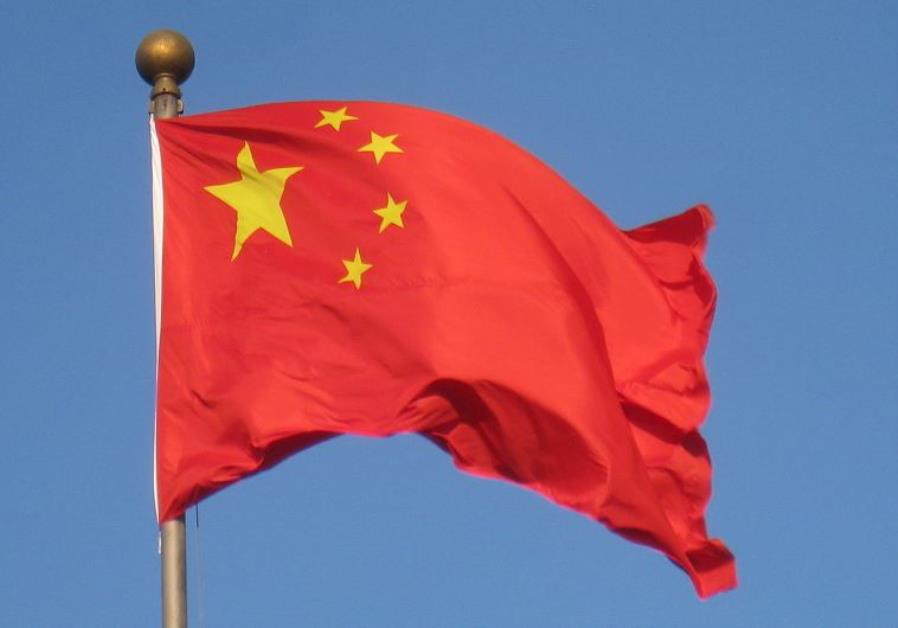
POLITICAL ISSUES JORDAN China’s Foreign Minister Wang Yi meets Jordanian Foreign Minister Ayman Sa.....
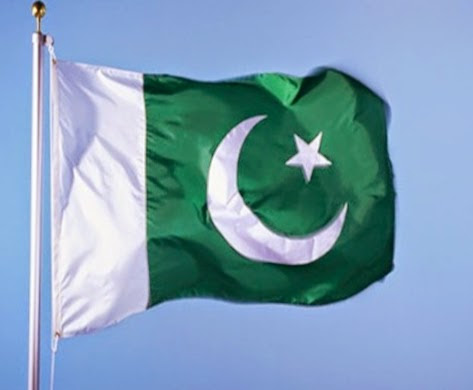
POLITICAL ISSUES IRAN 1.Senate Chairman meets Rouhani; discusses Kashmir issue Islamabad, Monday,.....
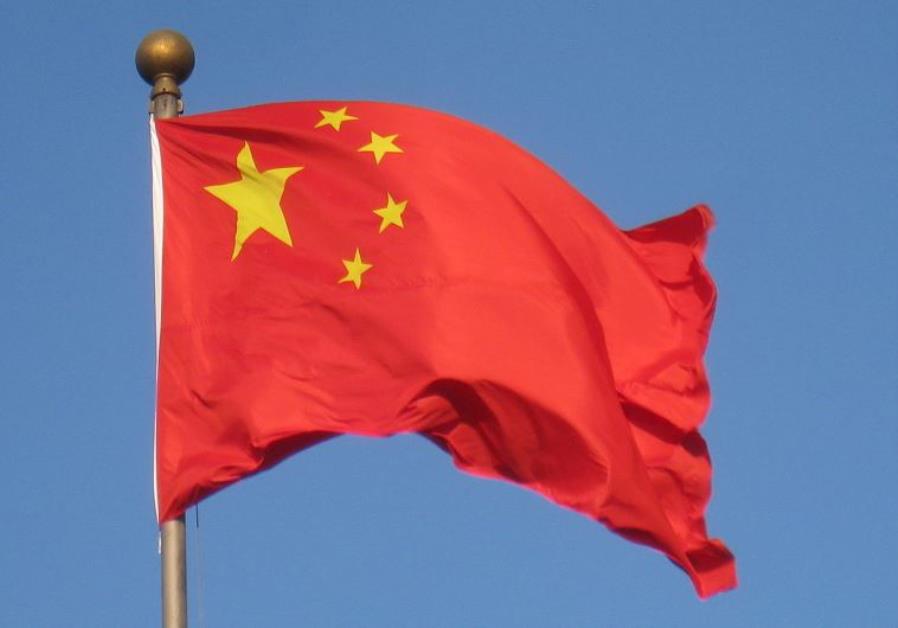
POLITICAL ISSUES EGYPT 1) Egyptian Ambassador talks about bi-lateral ties Beijing, Sunday, 27 August .....
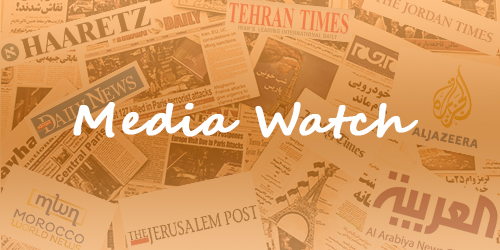
President Trump's decision on Jerusalem Note: US President Donald Trump’s decision of 6 December.....
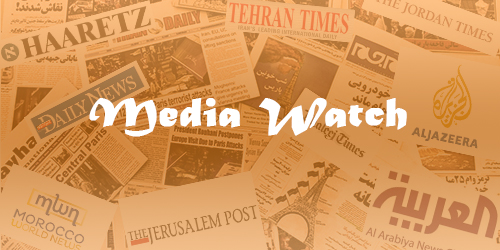
Note: The Joint Comprehensive Plan of Action, commonly known as the Iran Nuclear Deal was .....
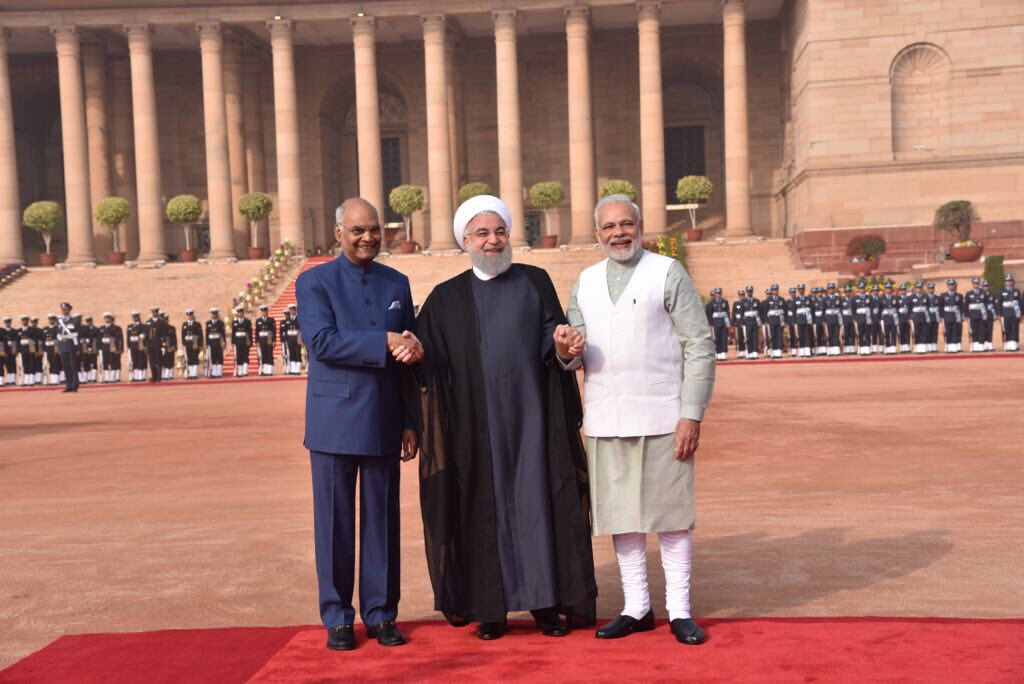
Note: During 15-17 February 2018, Hassan Rouhani, the President of the Islamic Republic of India, visited Indi.....
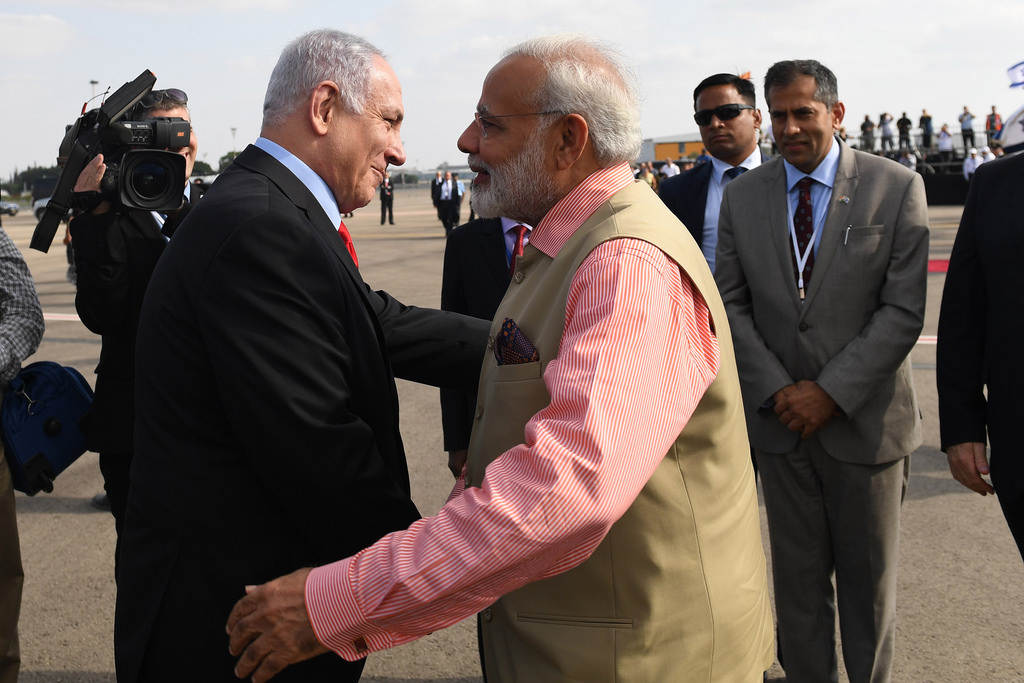
Note: Prime Minister Benjamin Netanyahu of Israel visited Israel during 14-16 January 2018. This was the secon.....
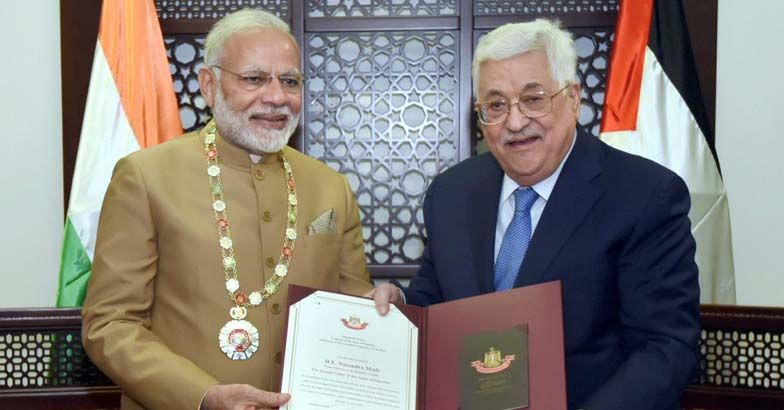
On February 10, 2018, Prime Minister Narendra Modi visited Palestine, nine months after Palestinian President .....
